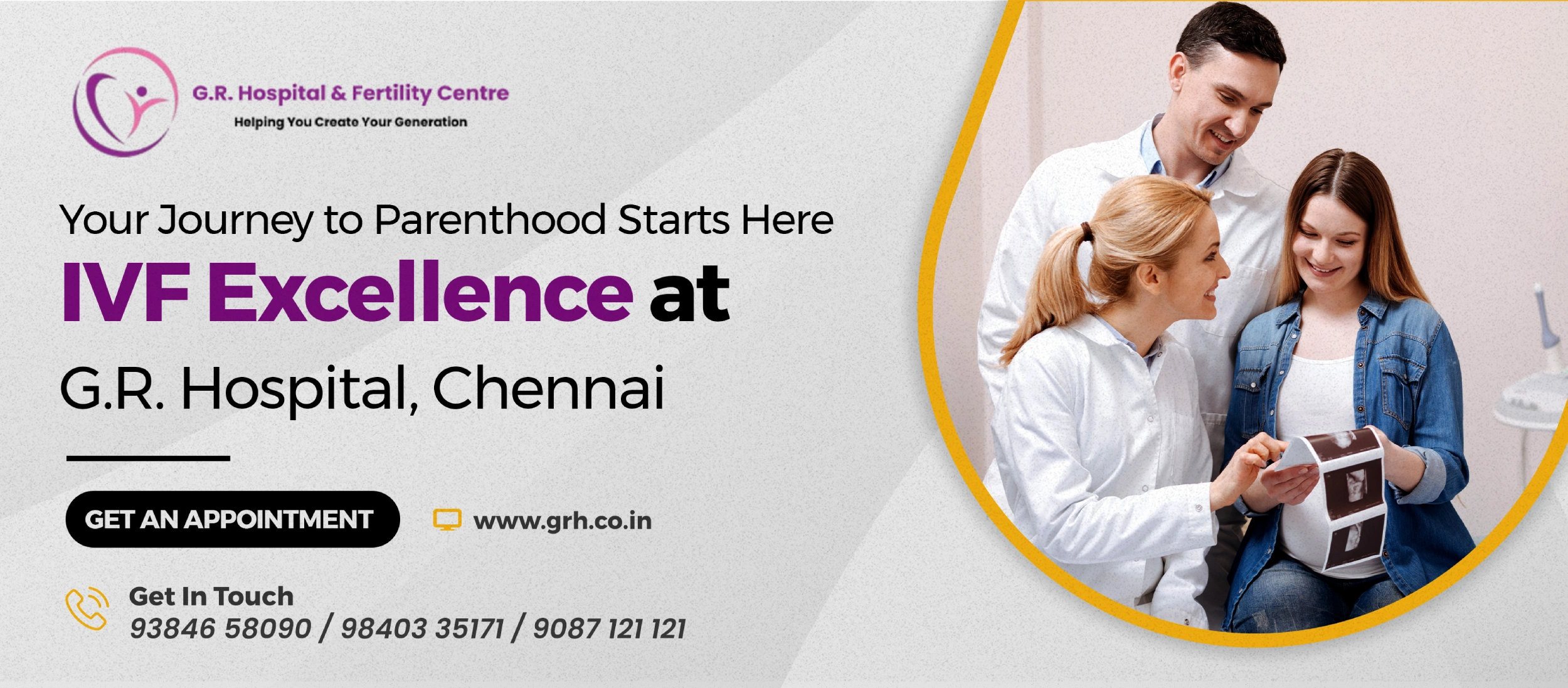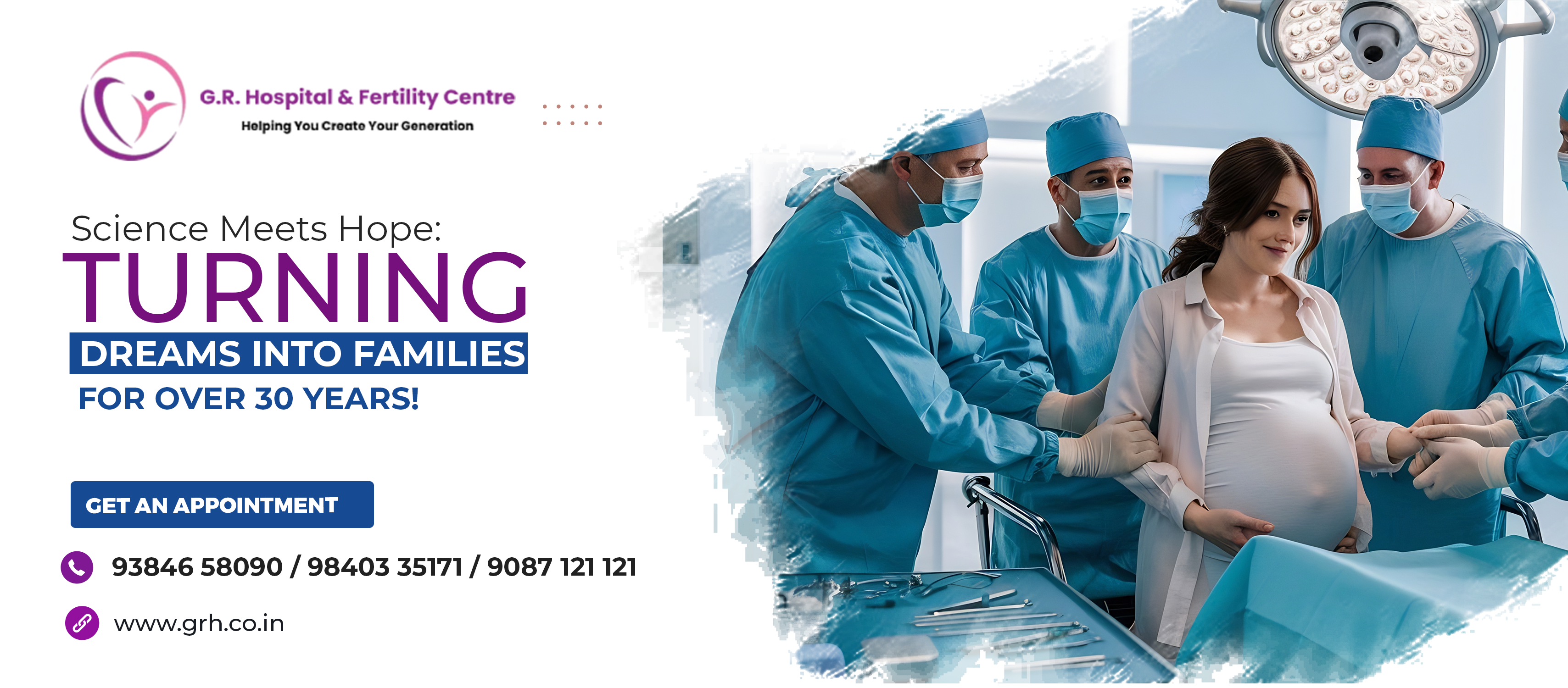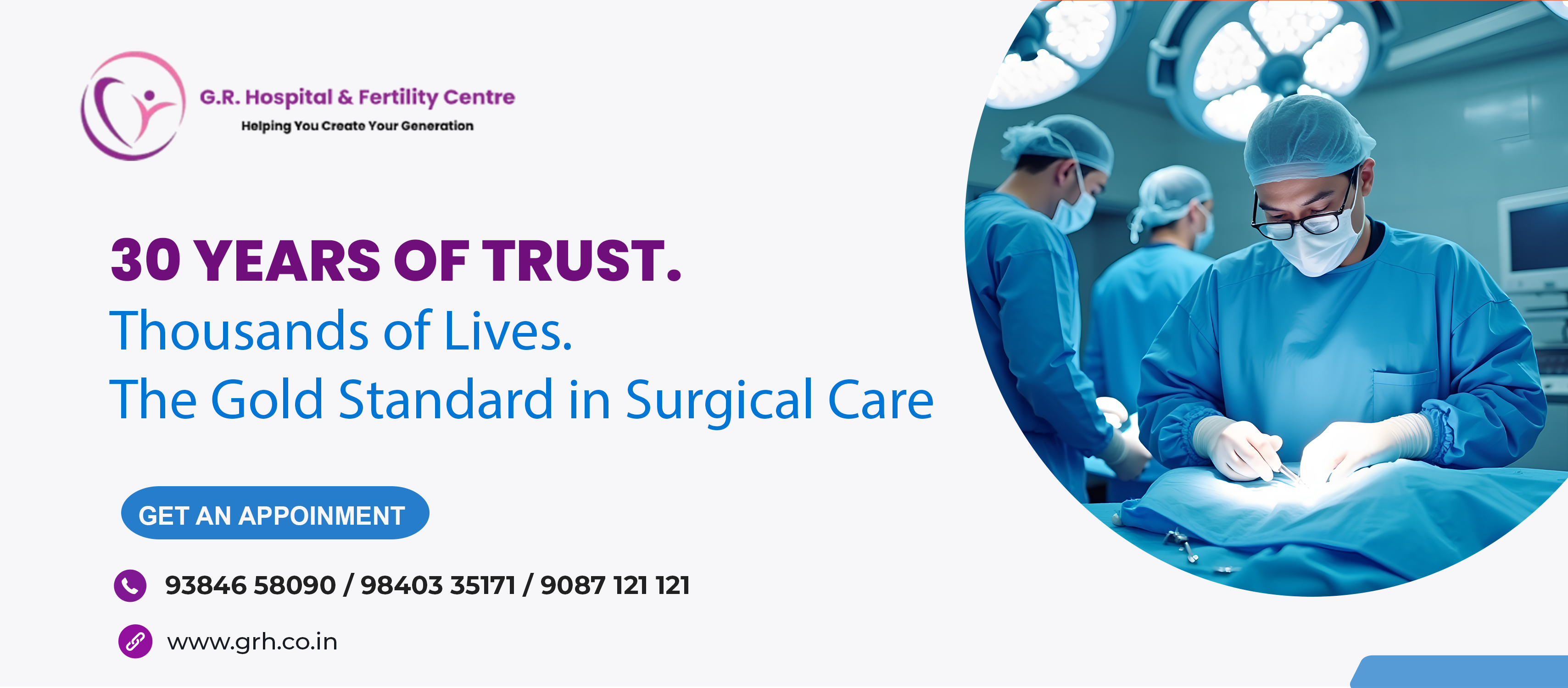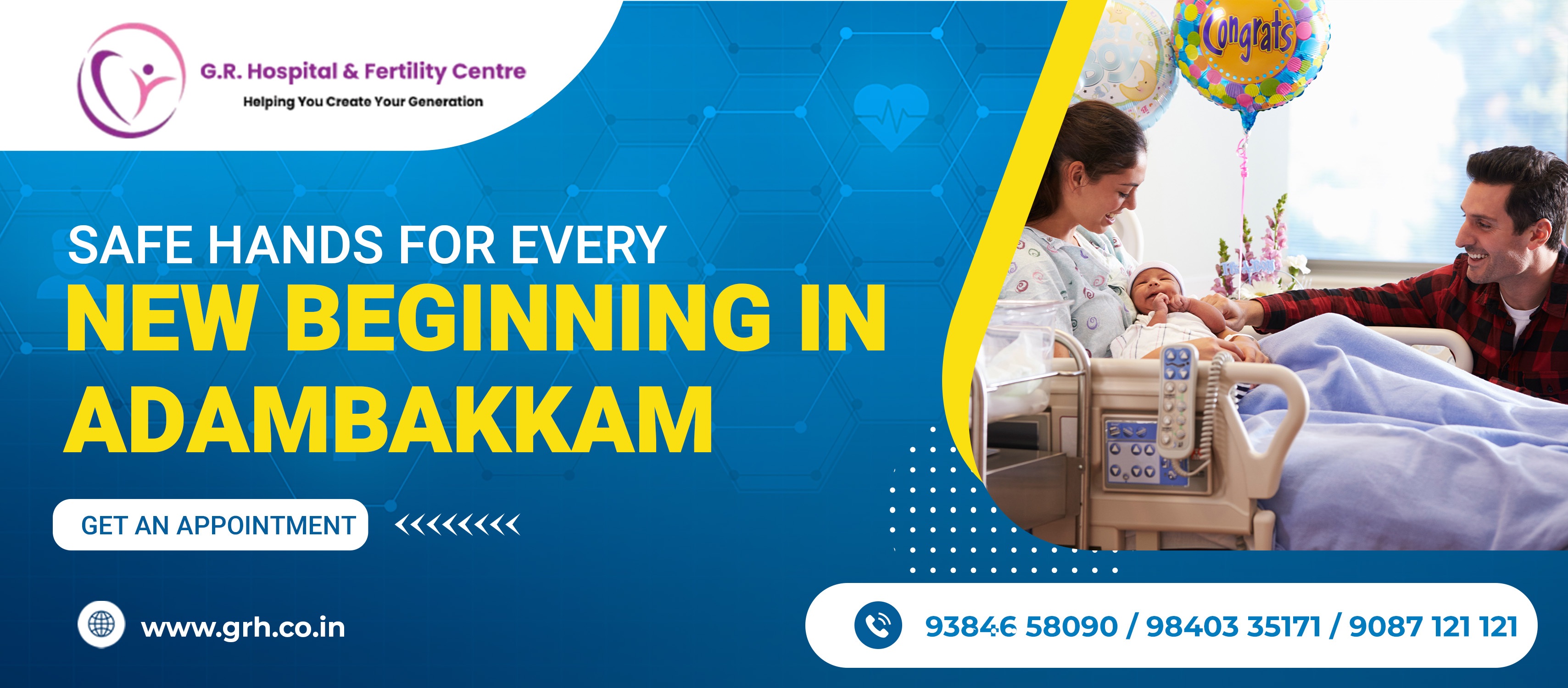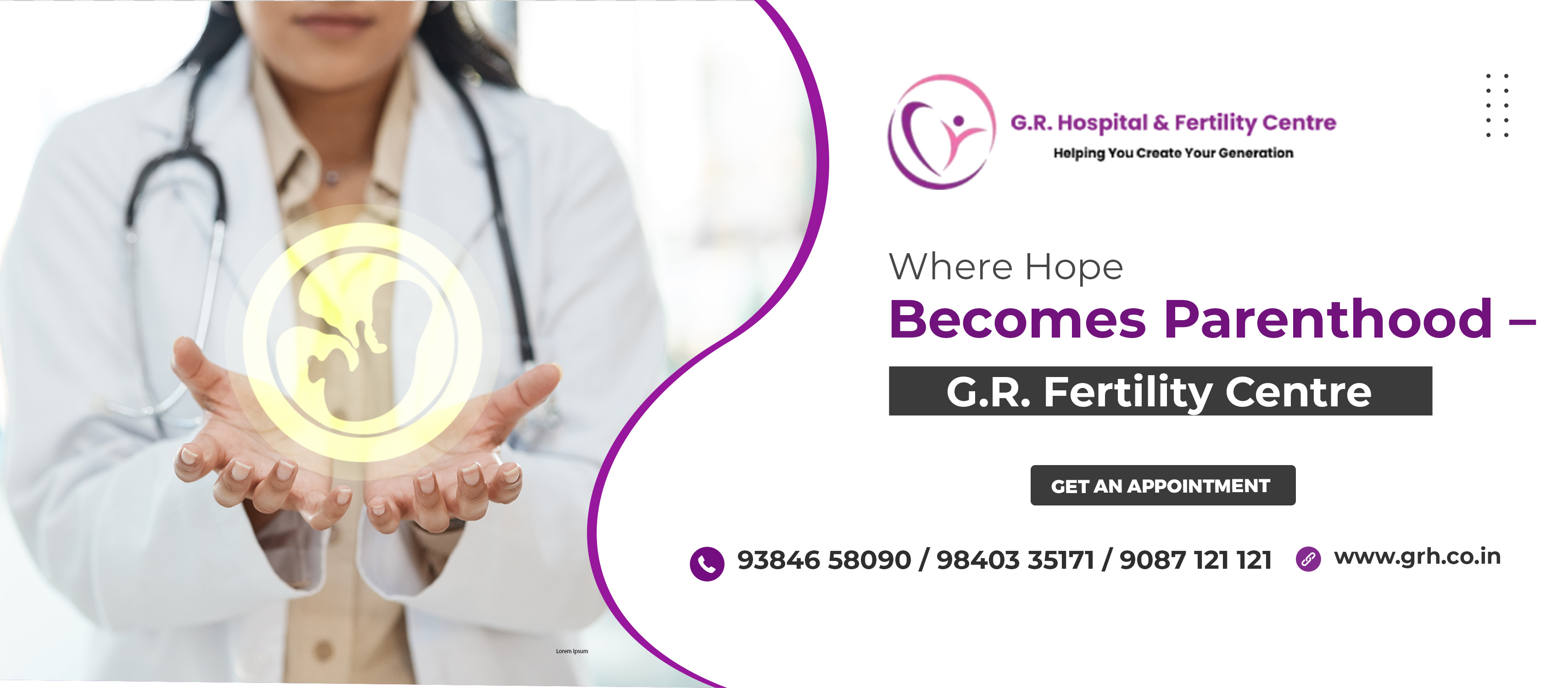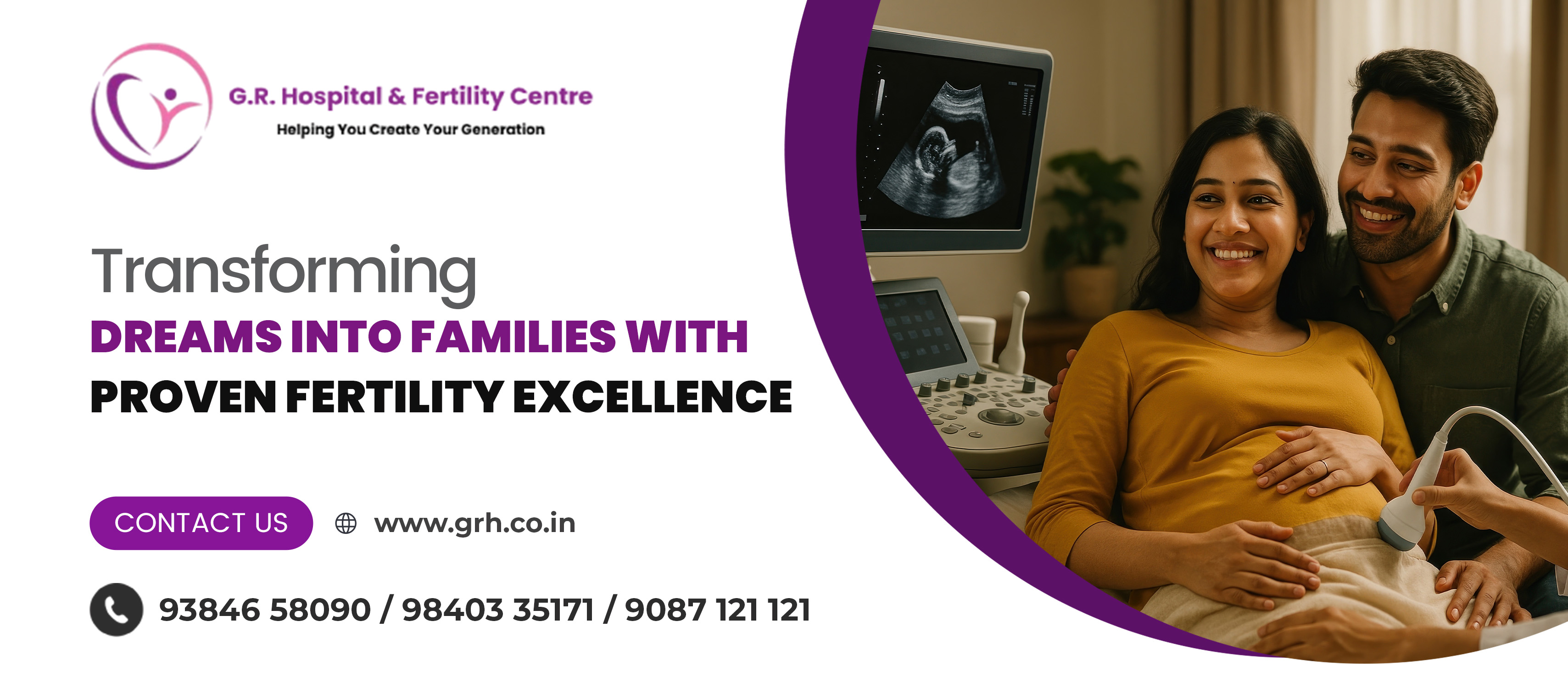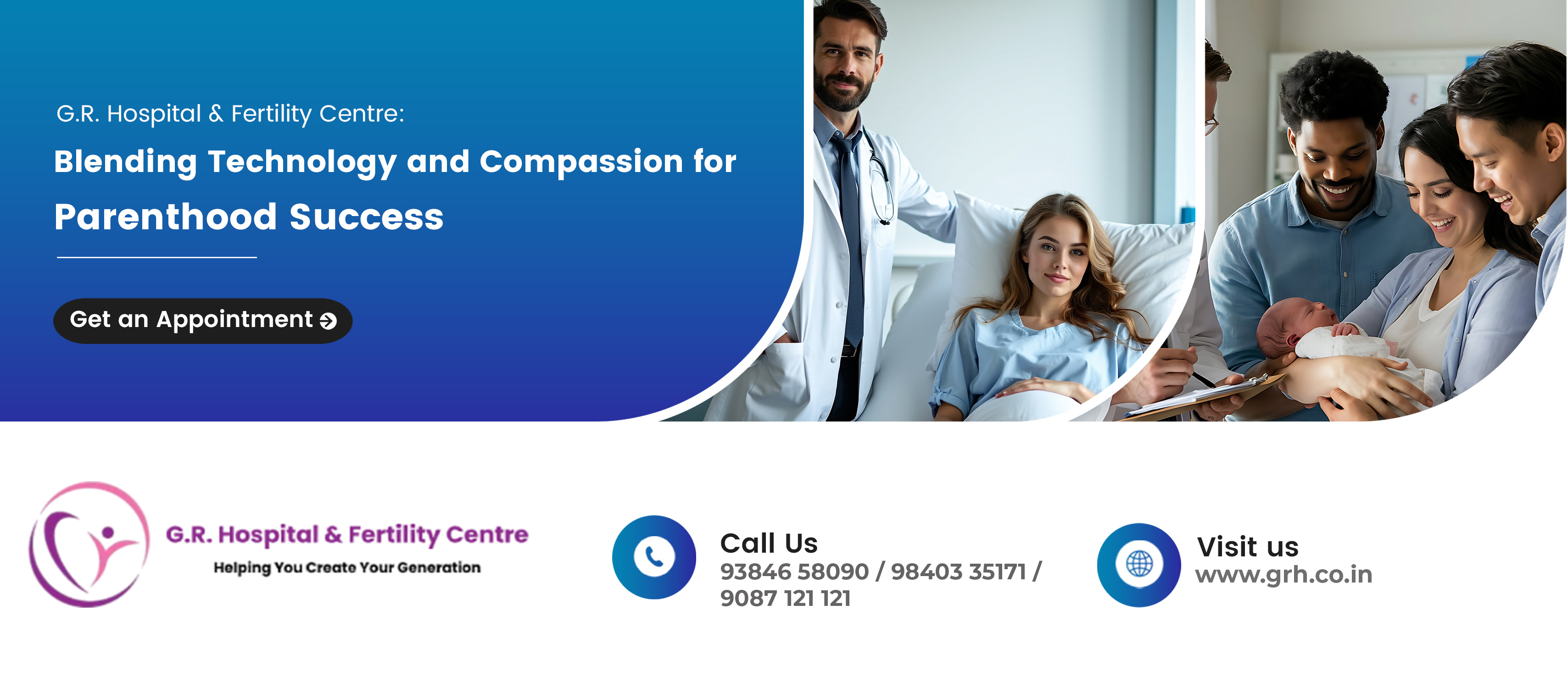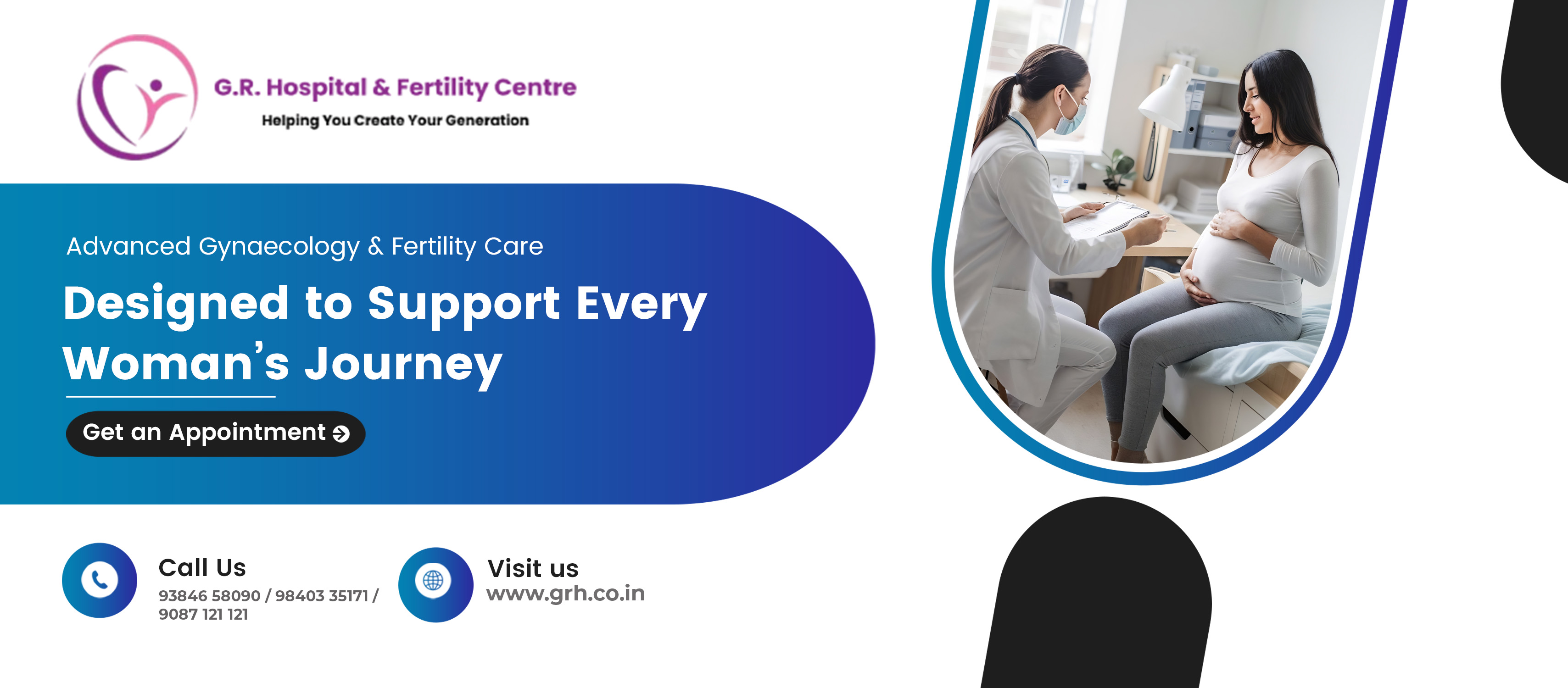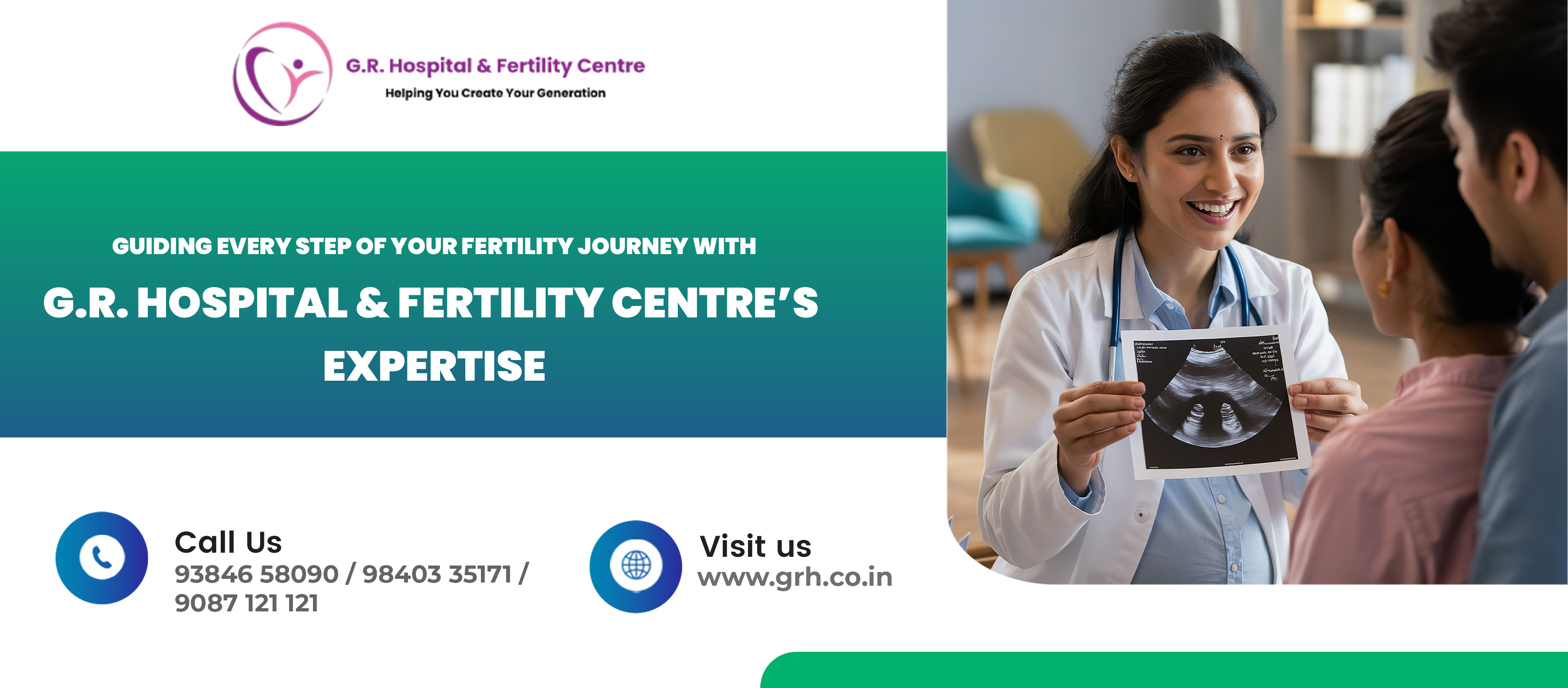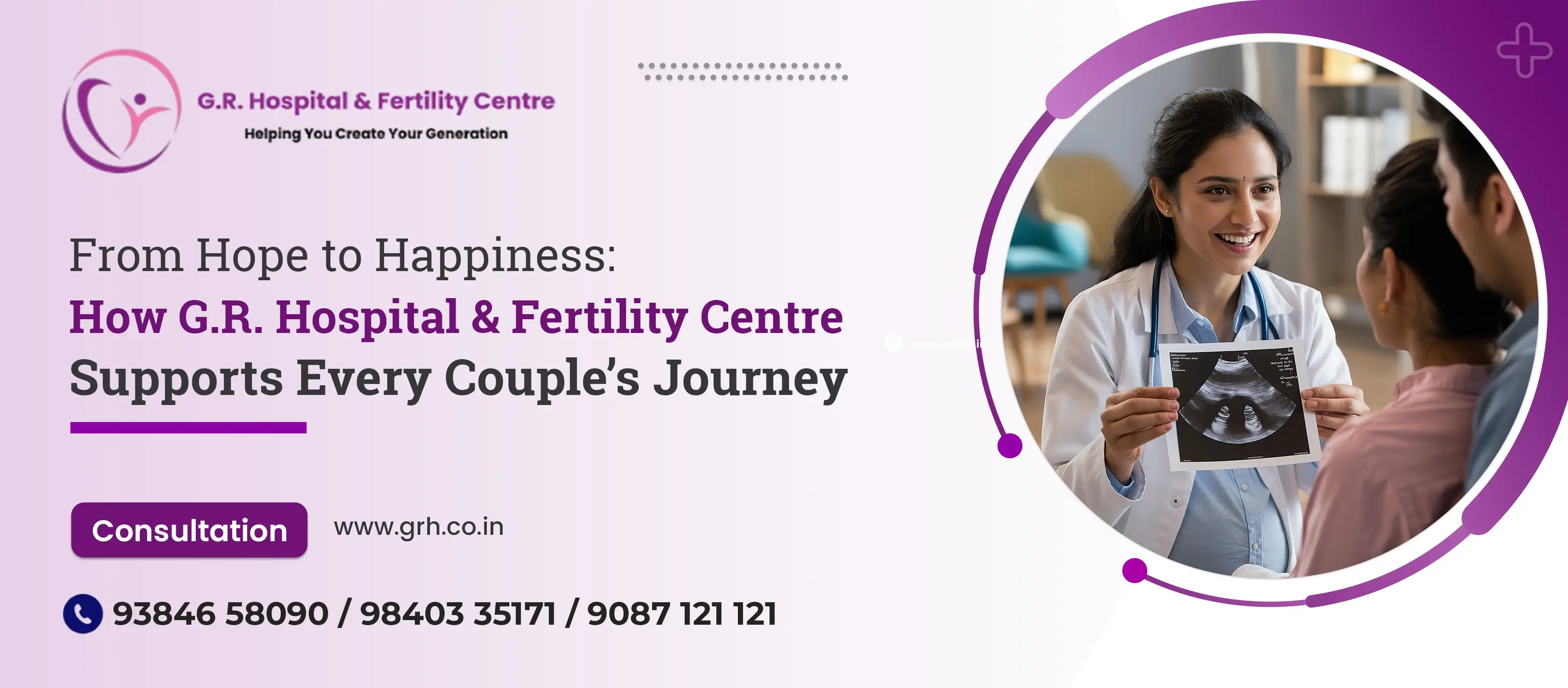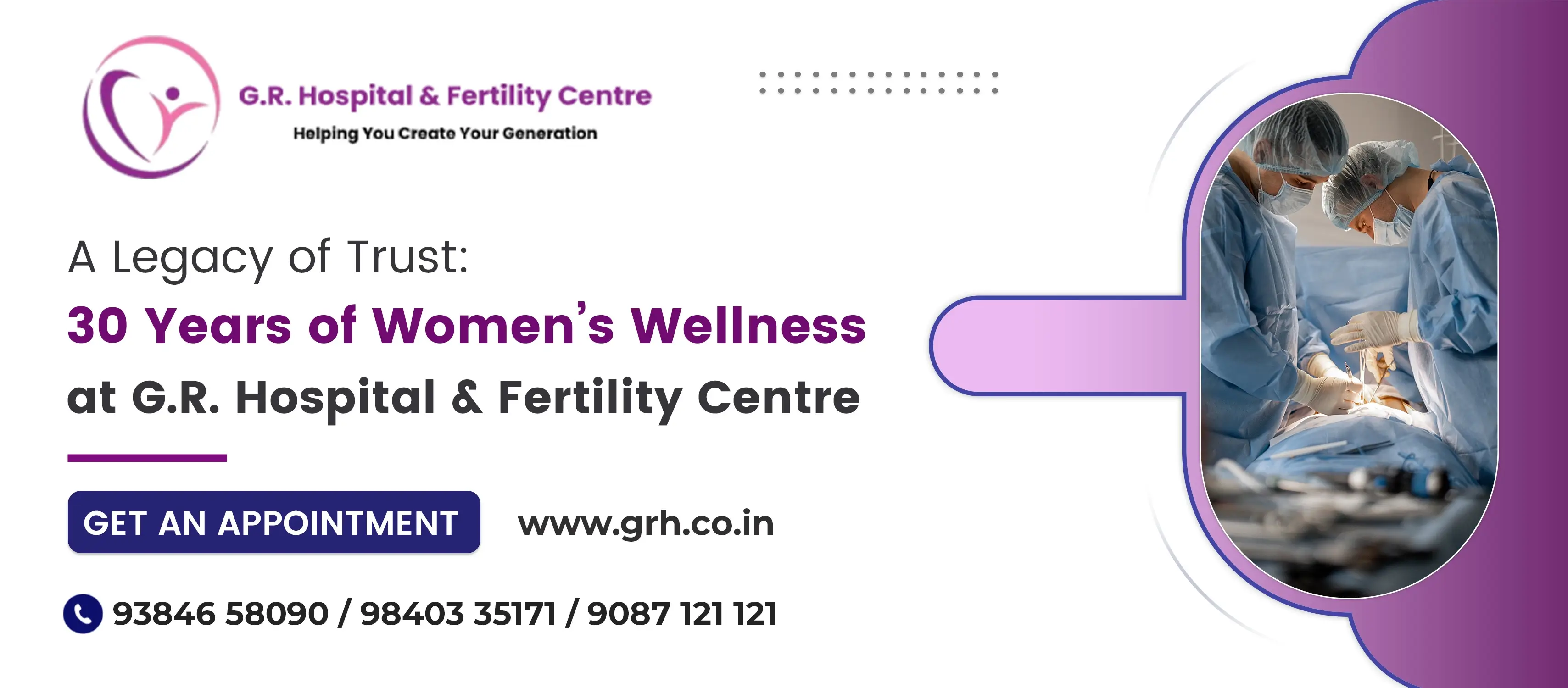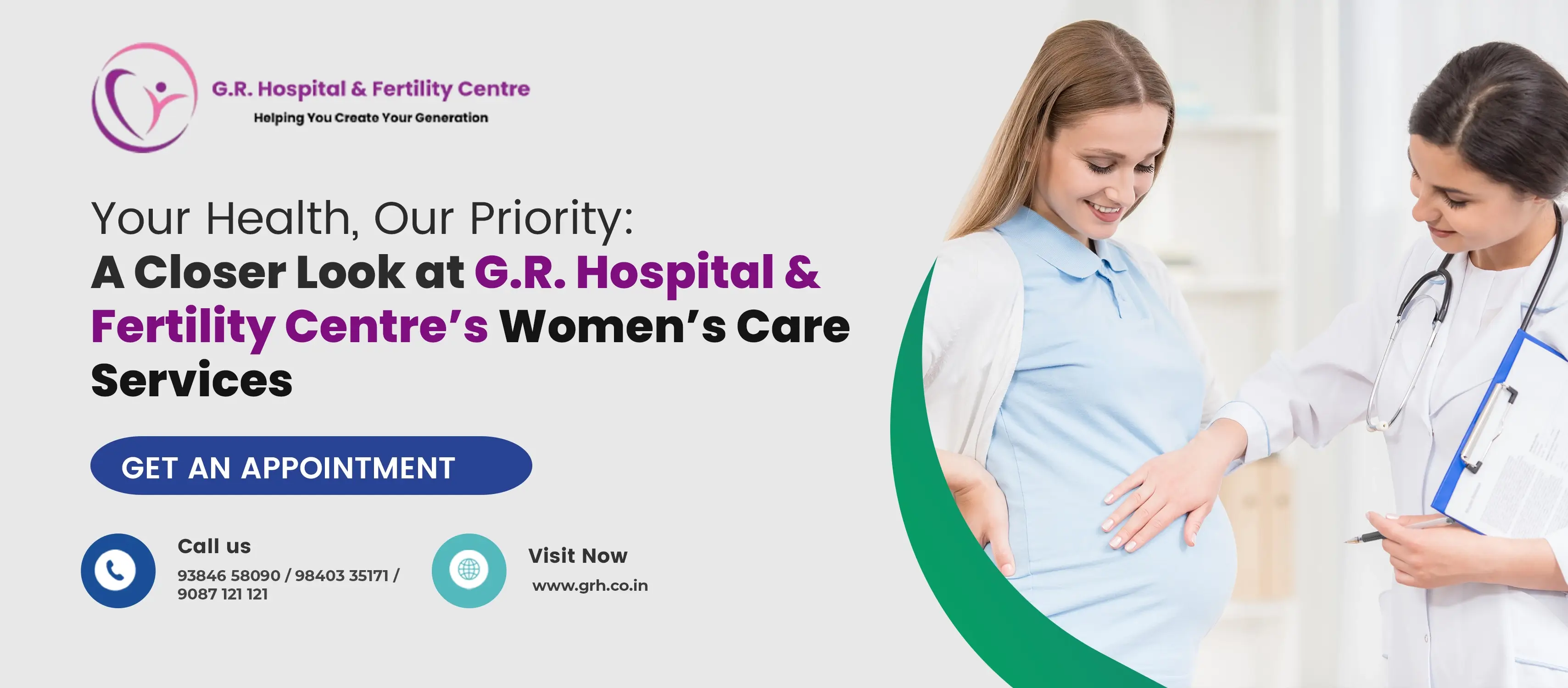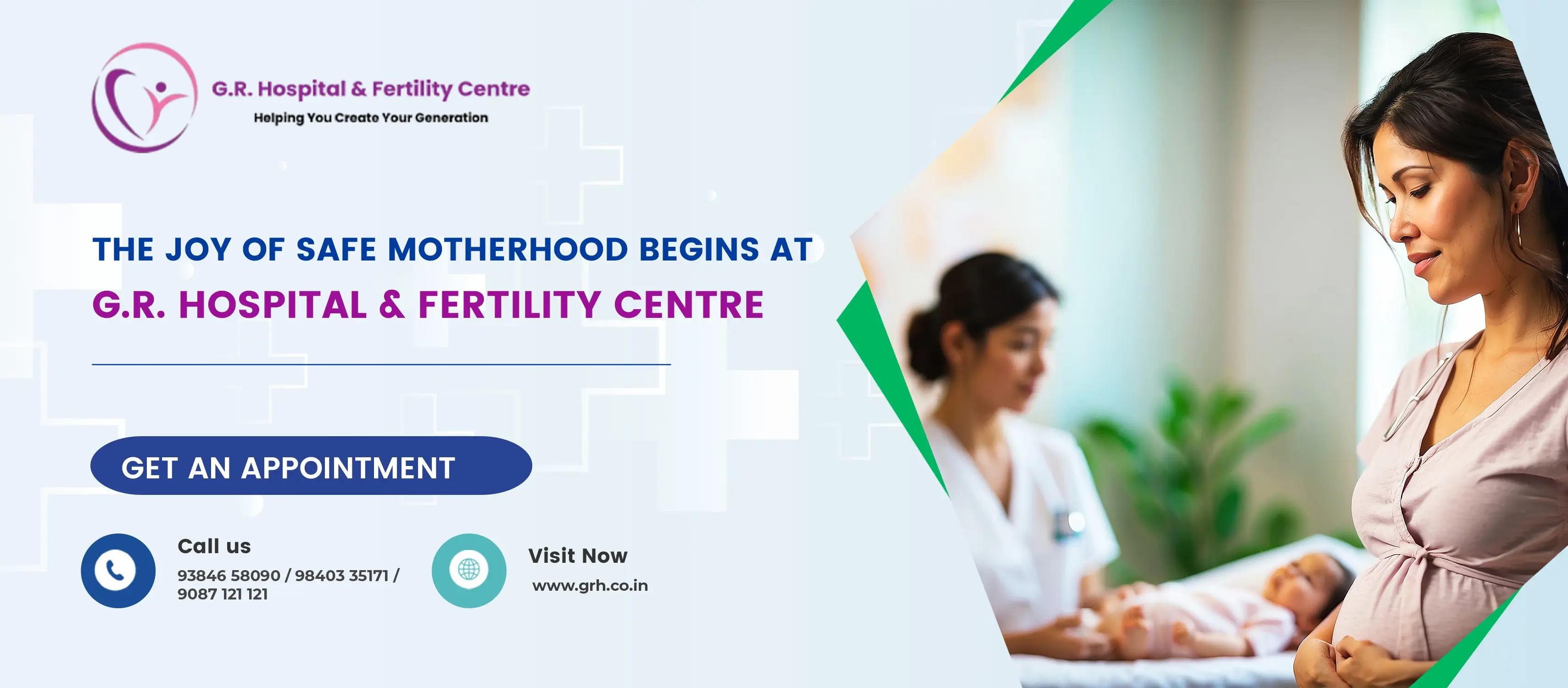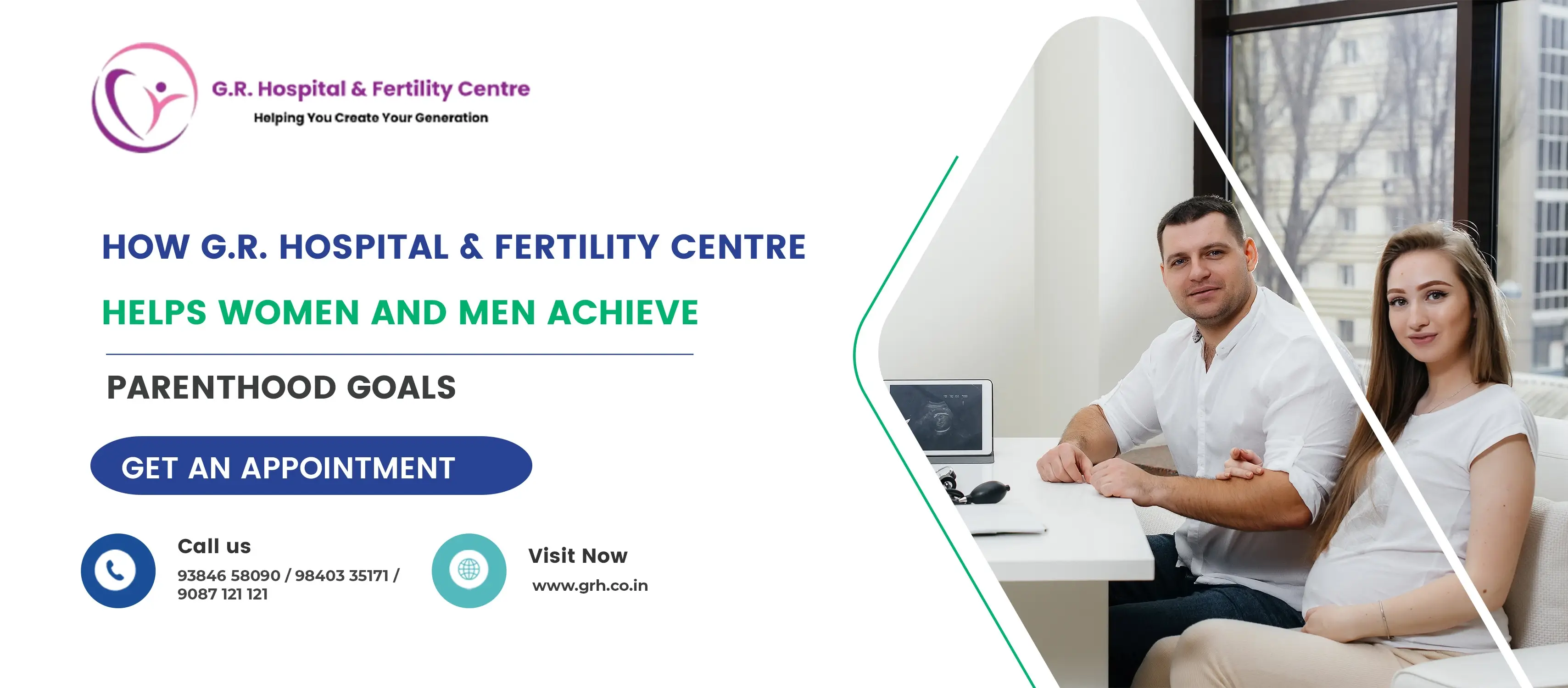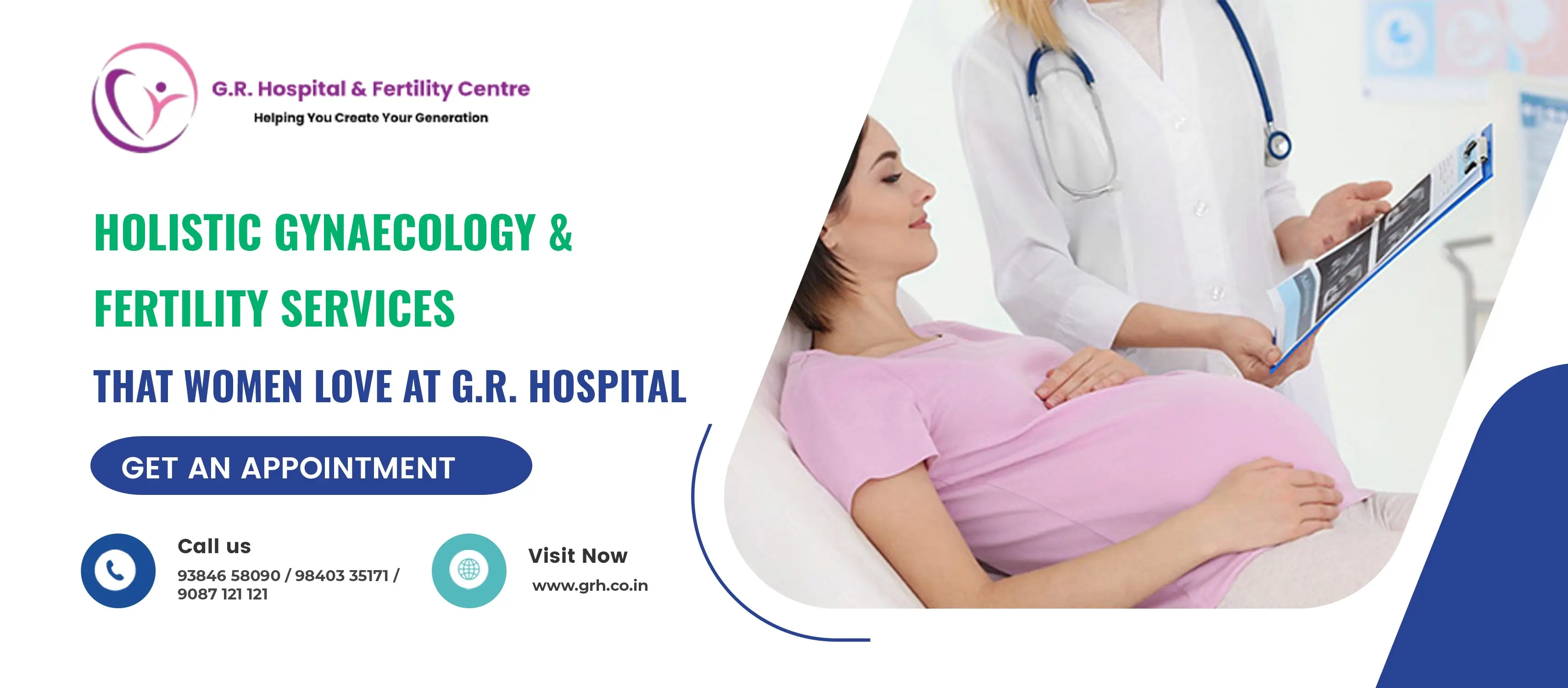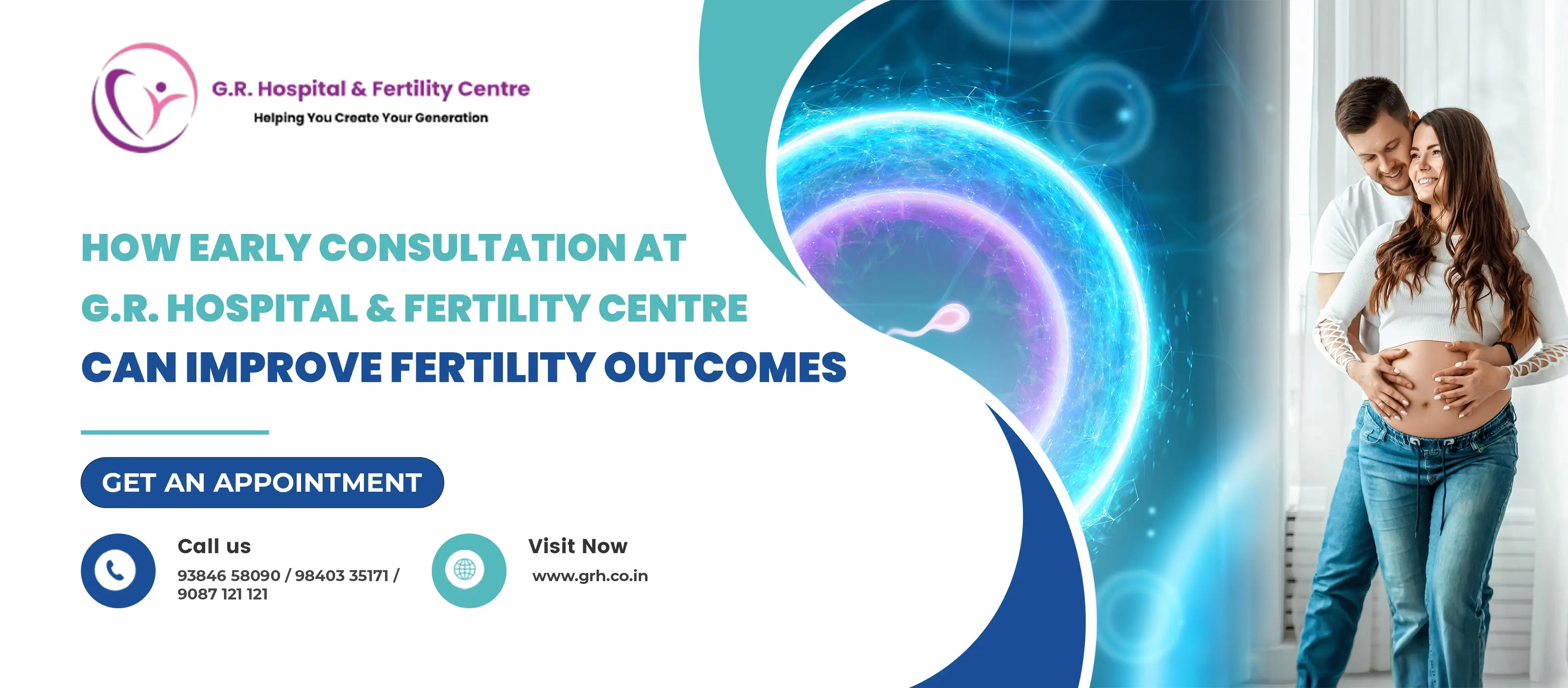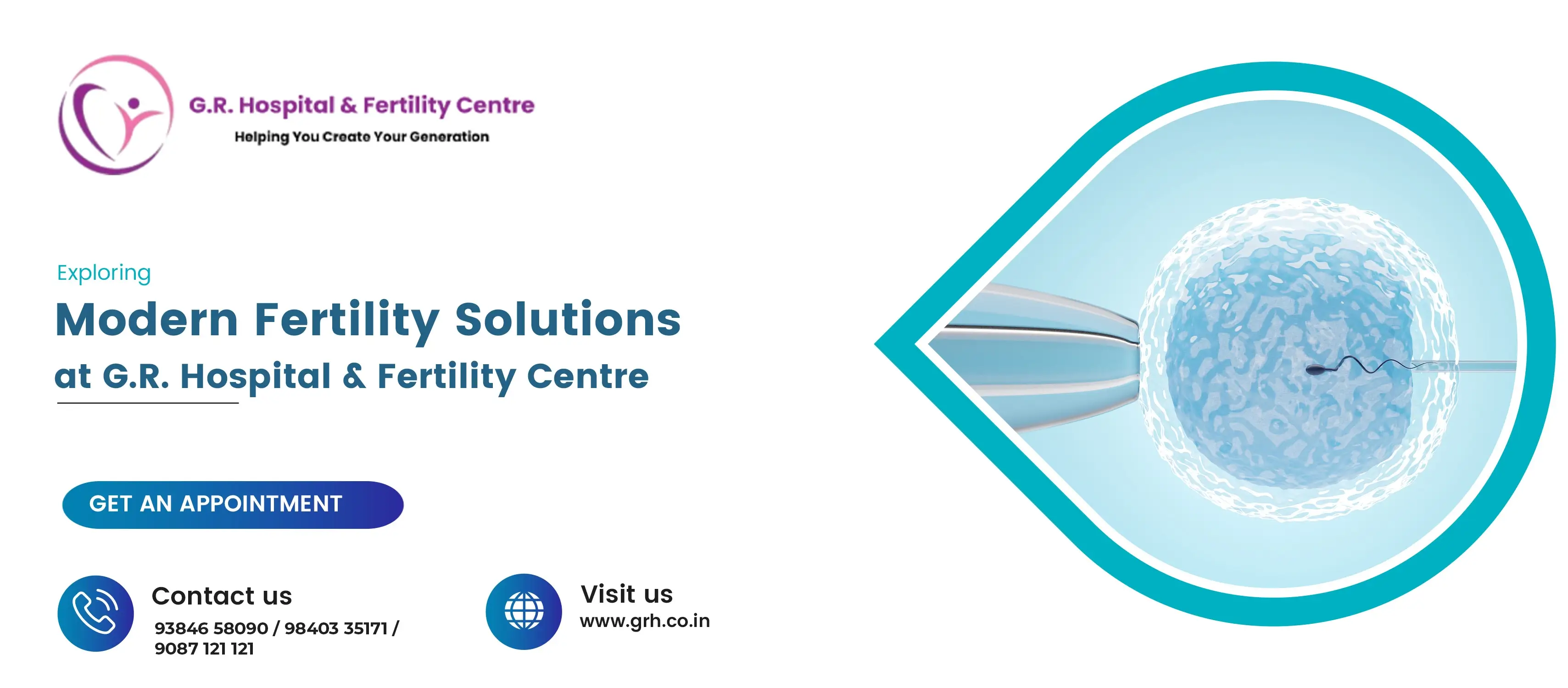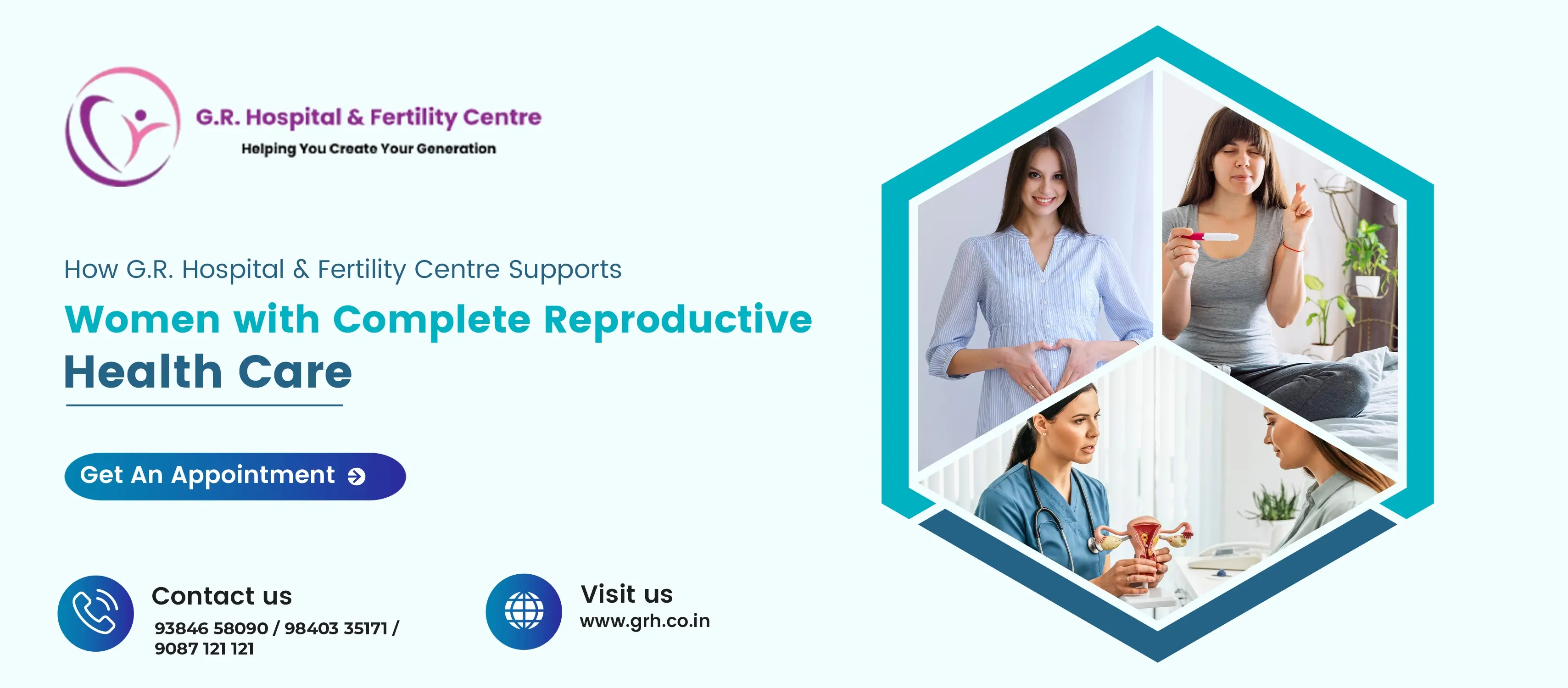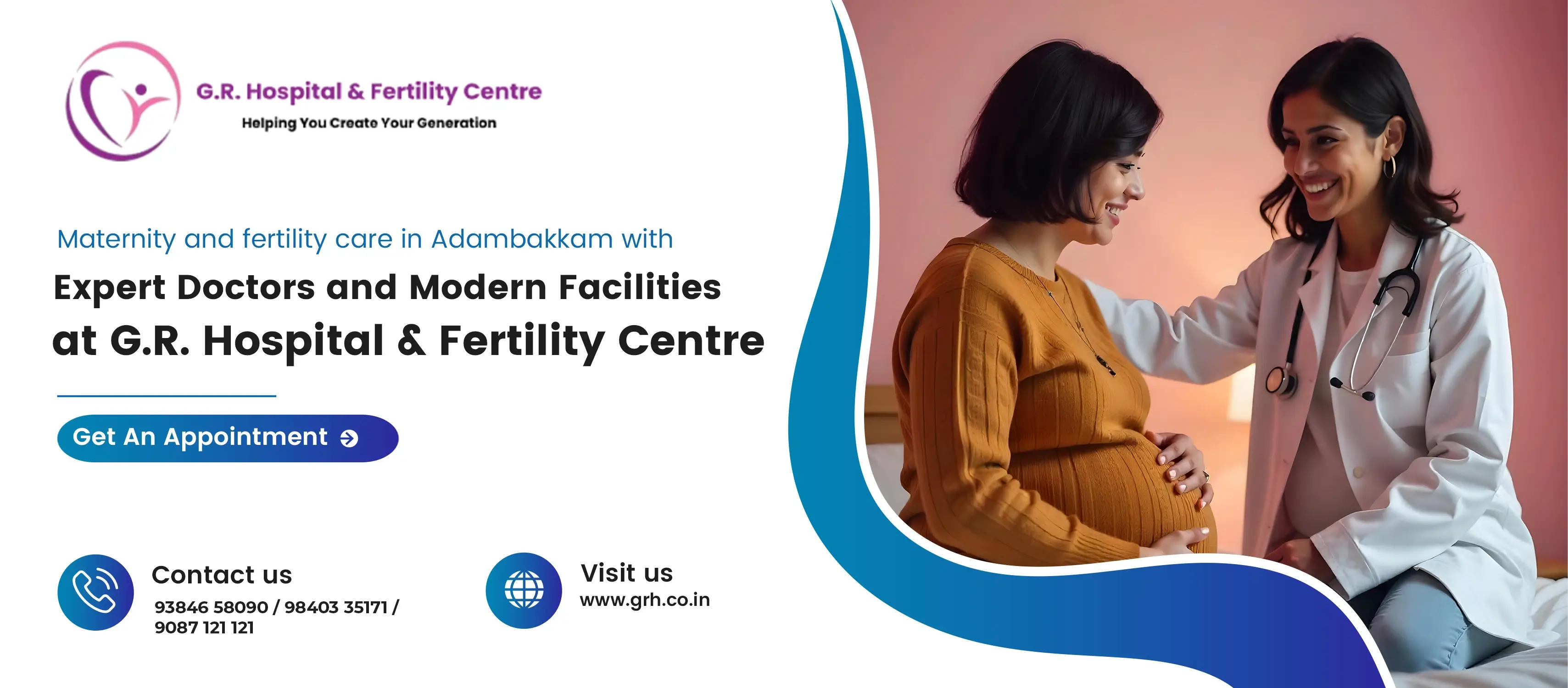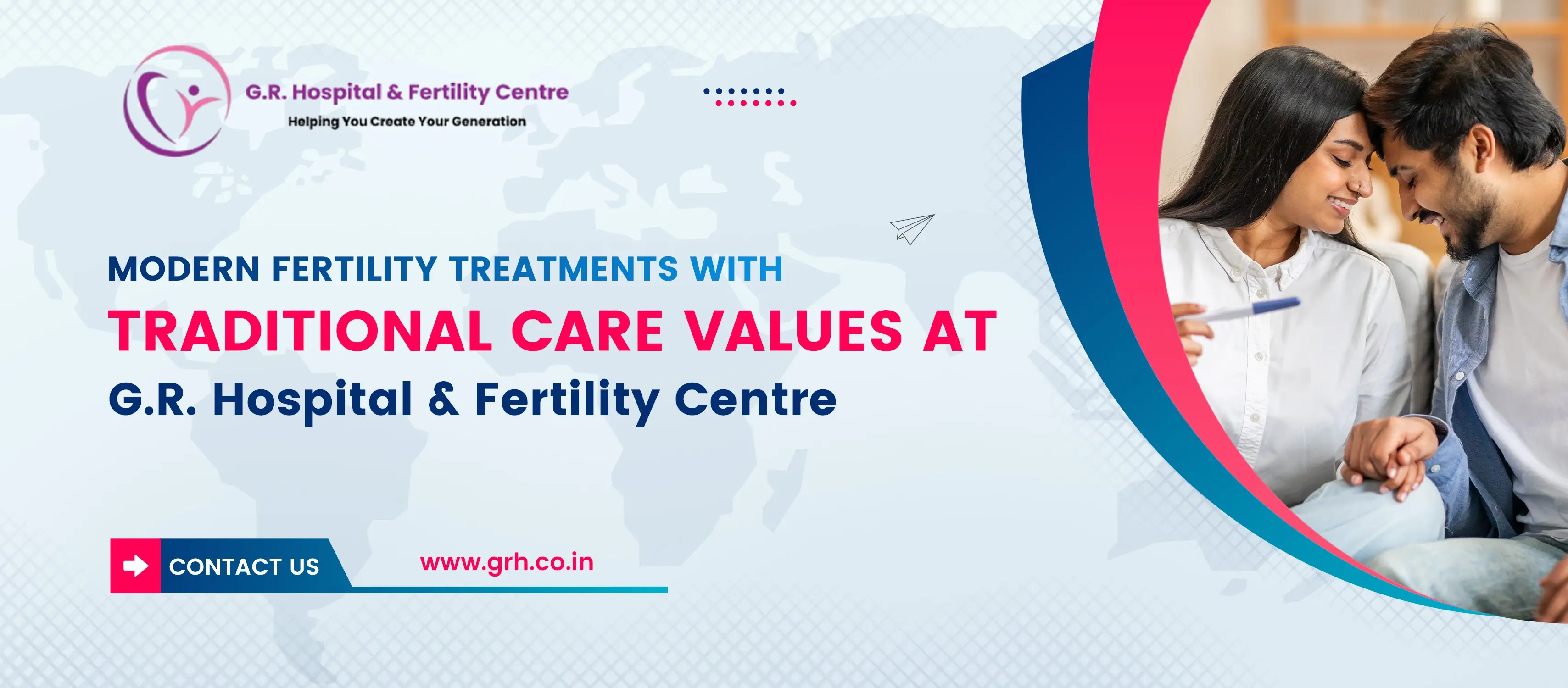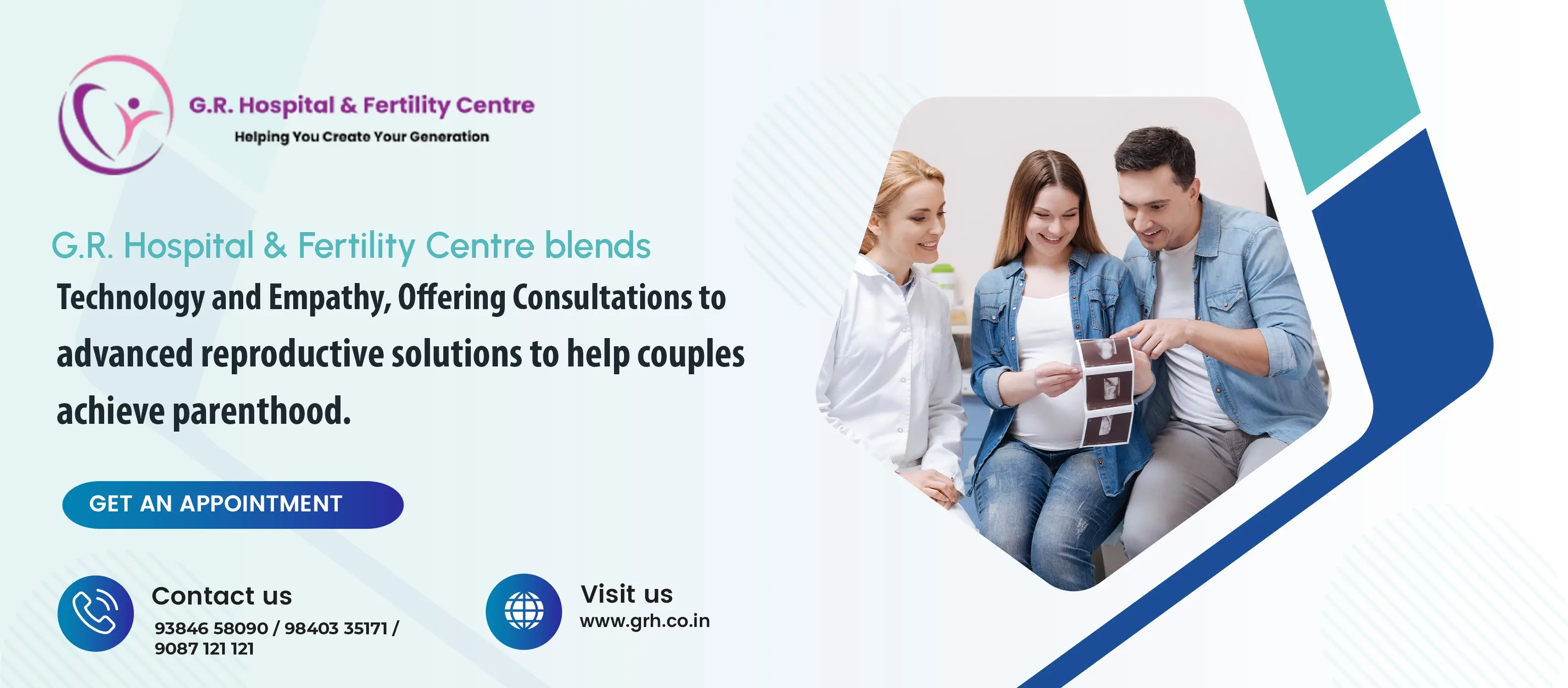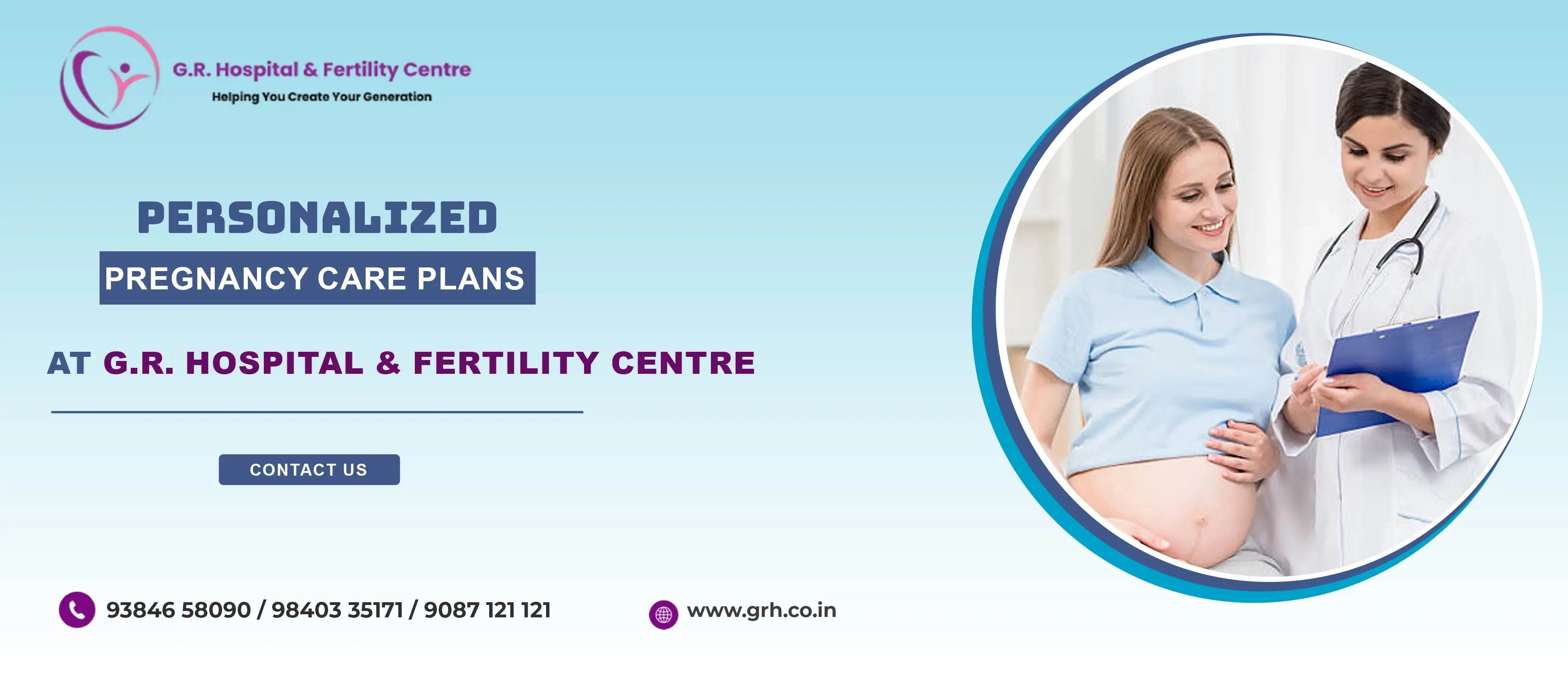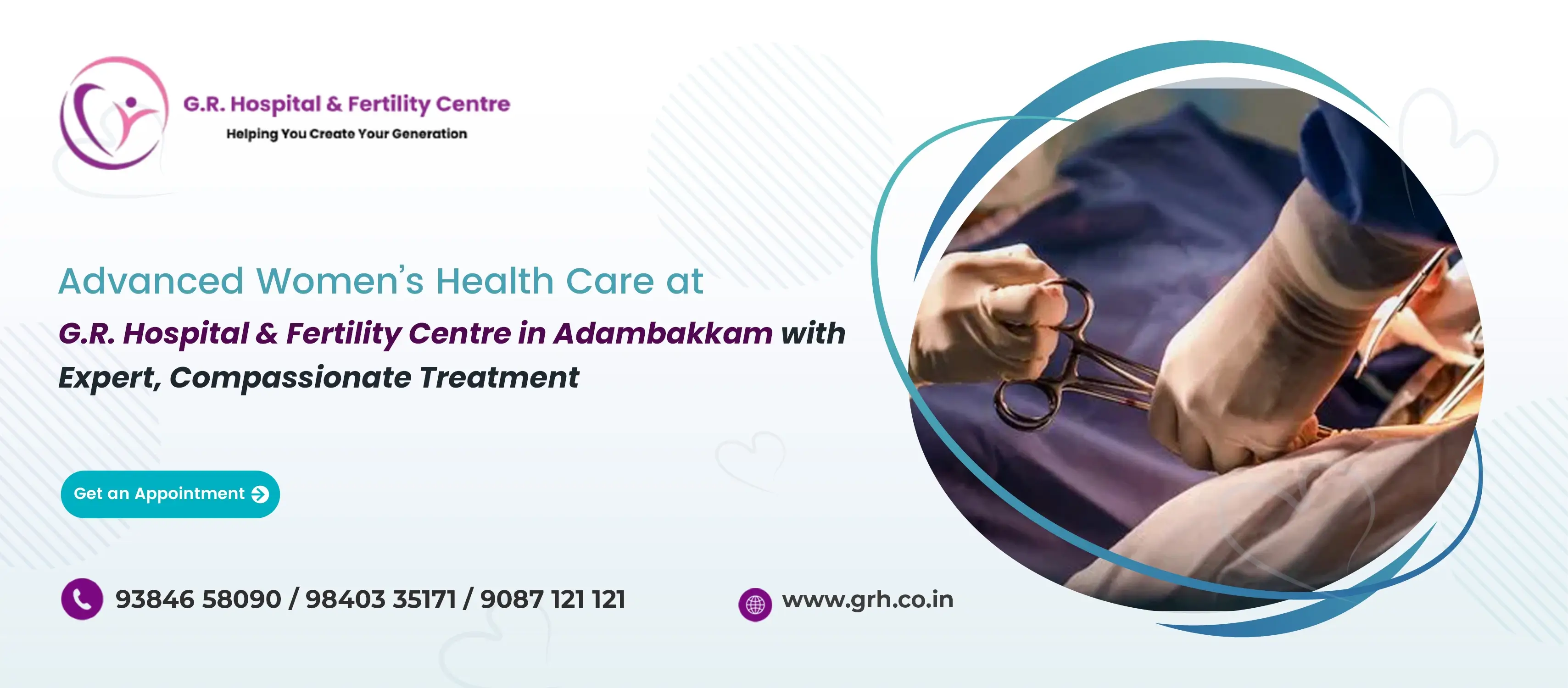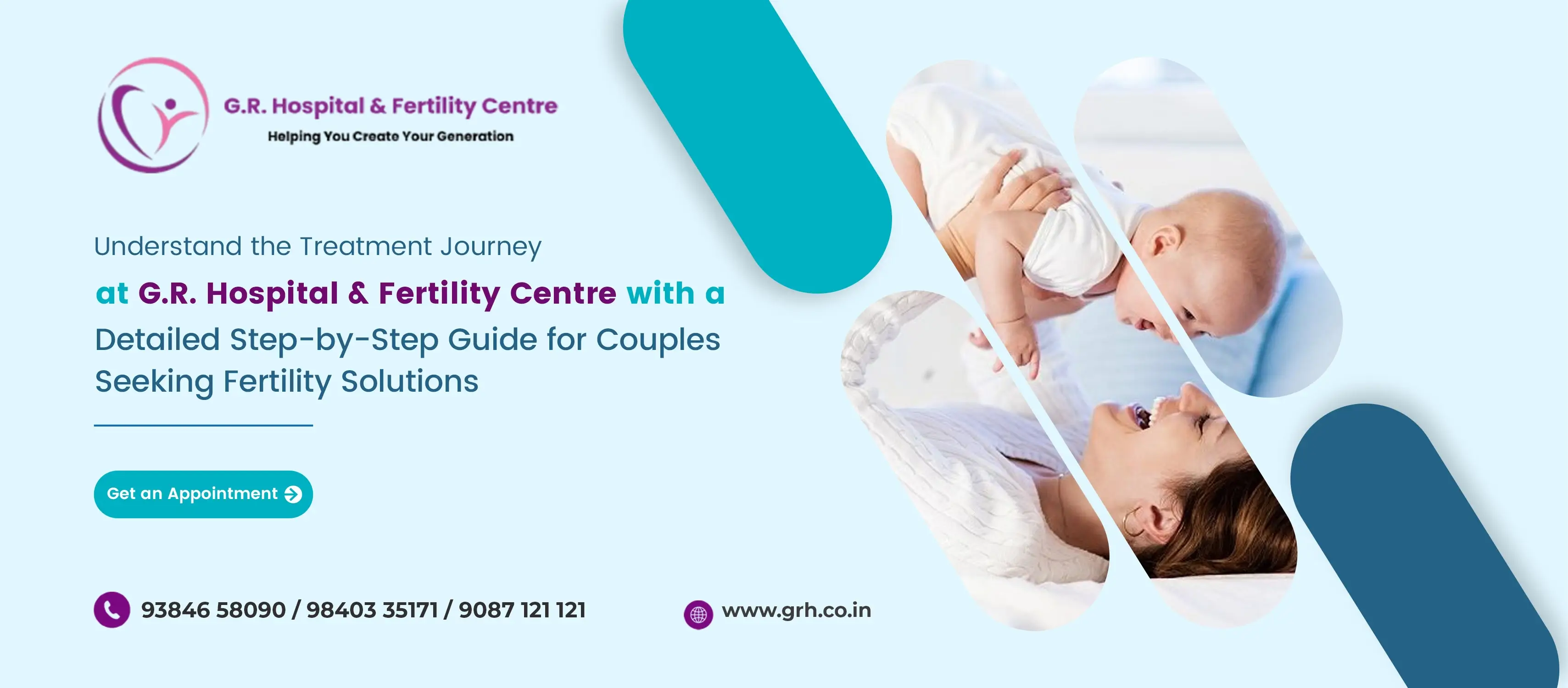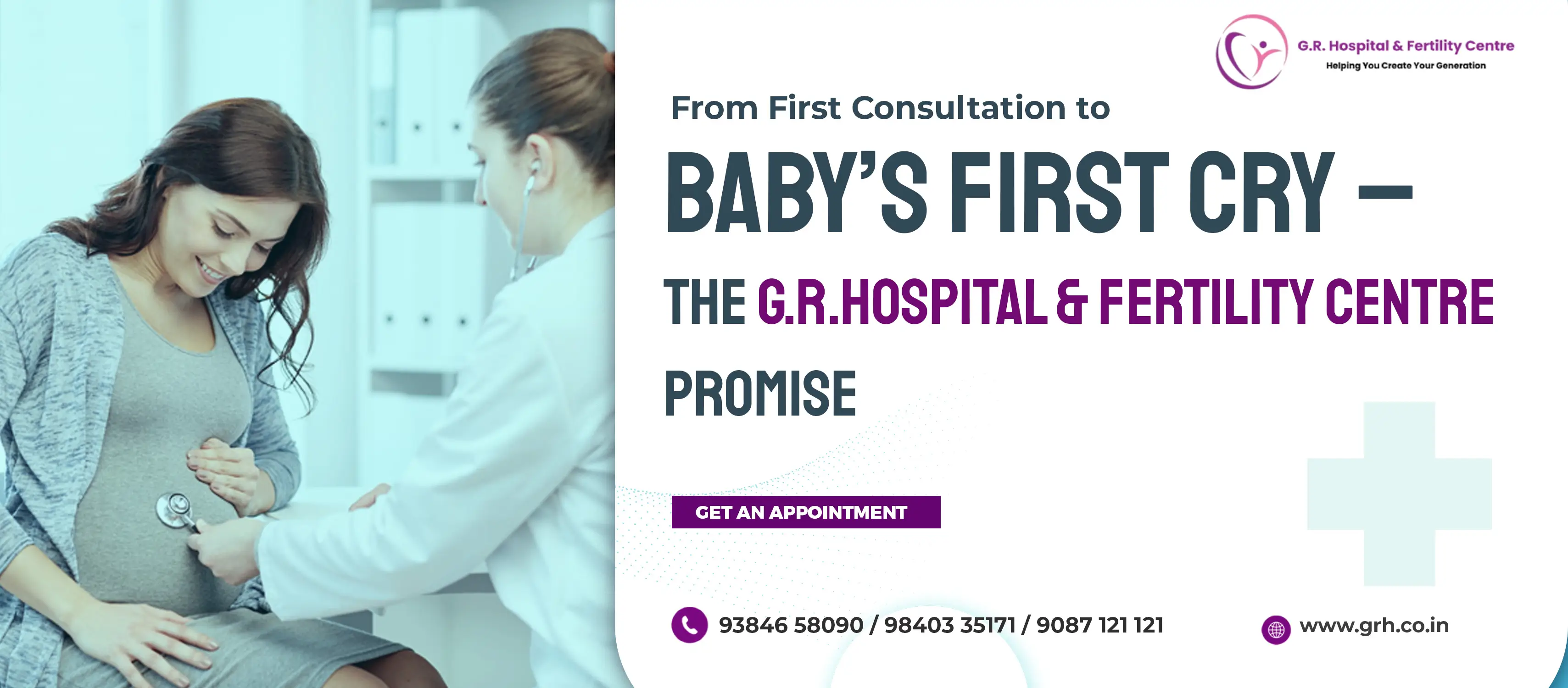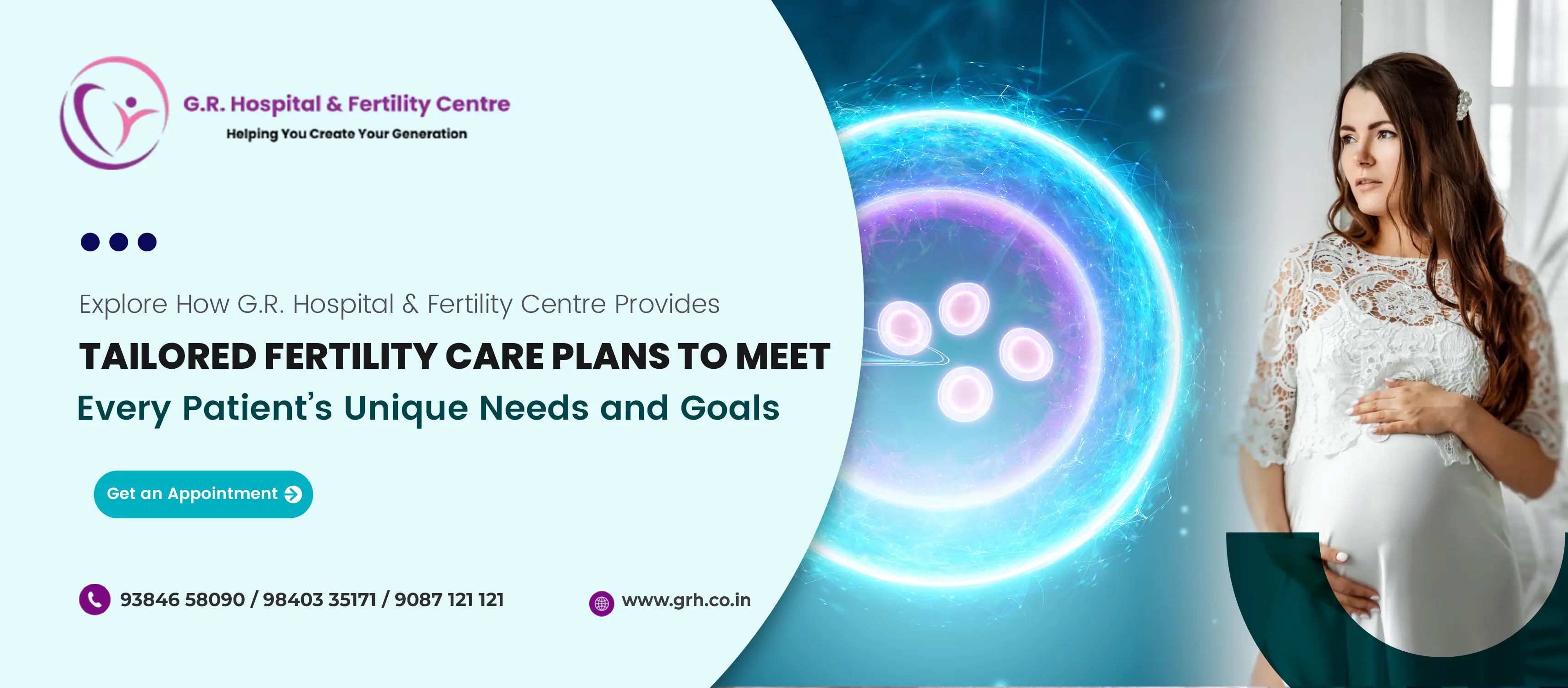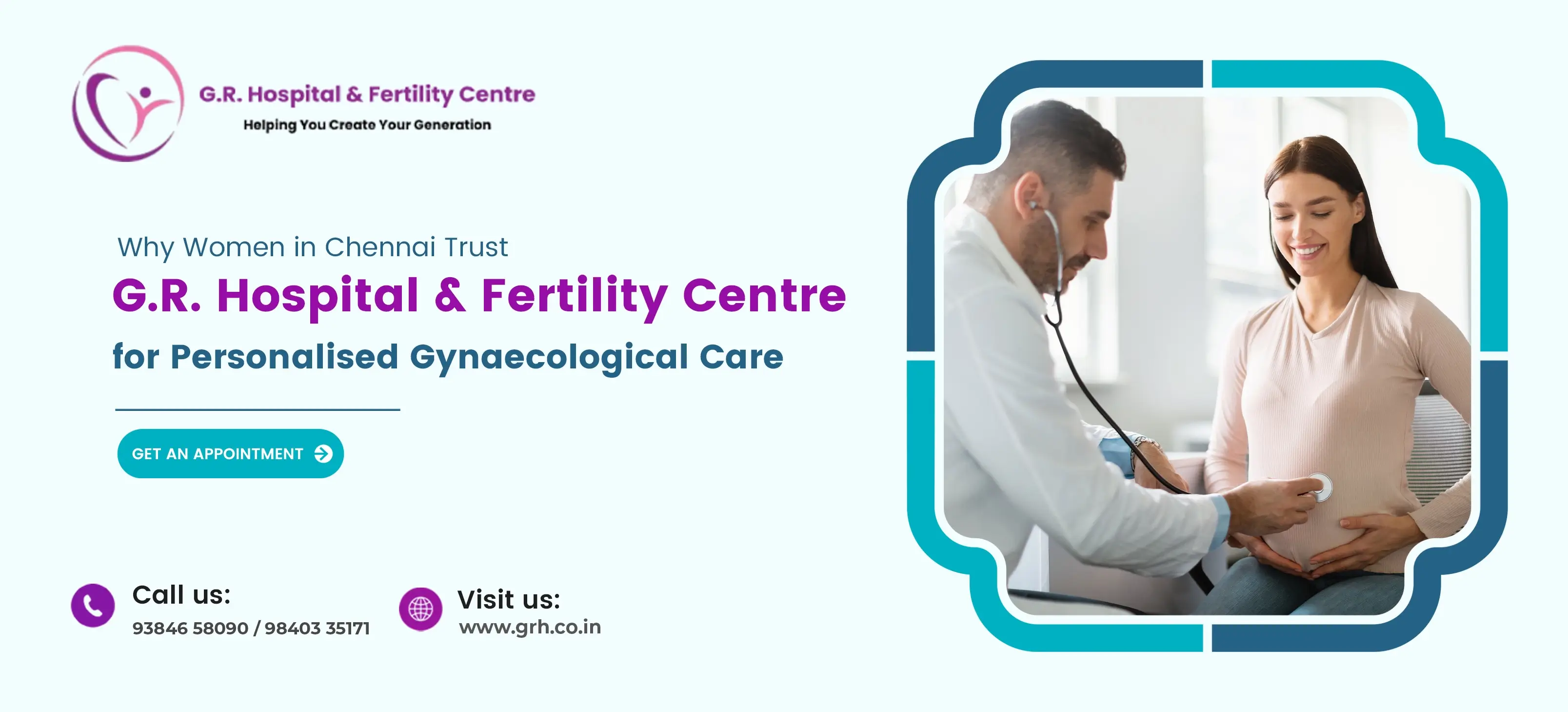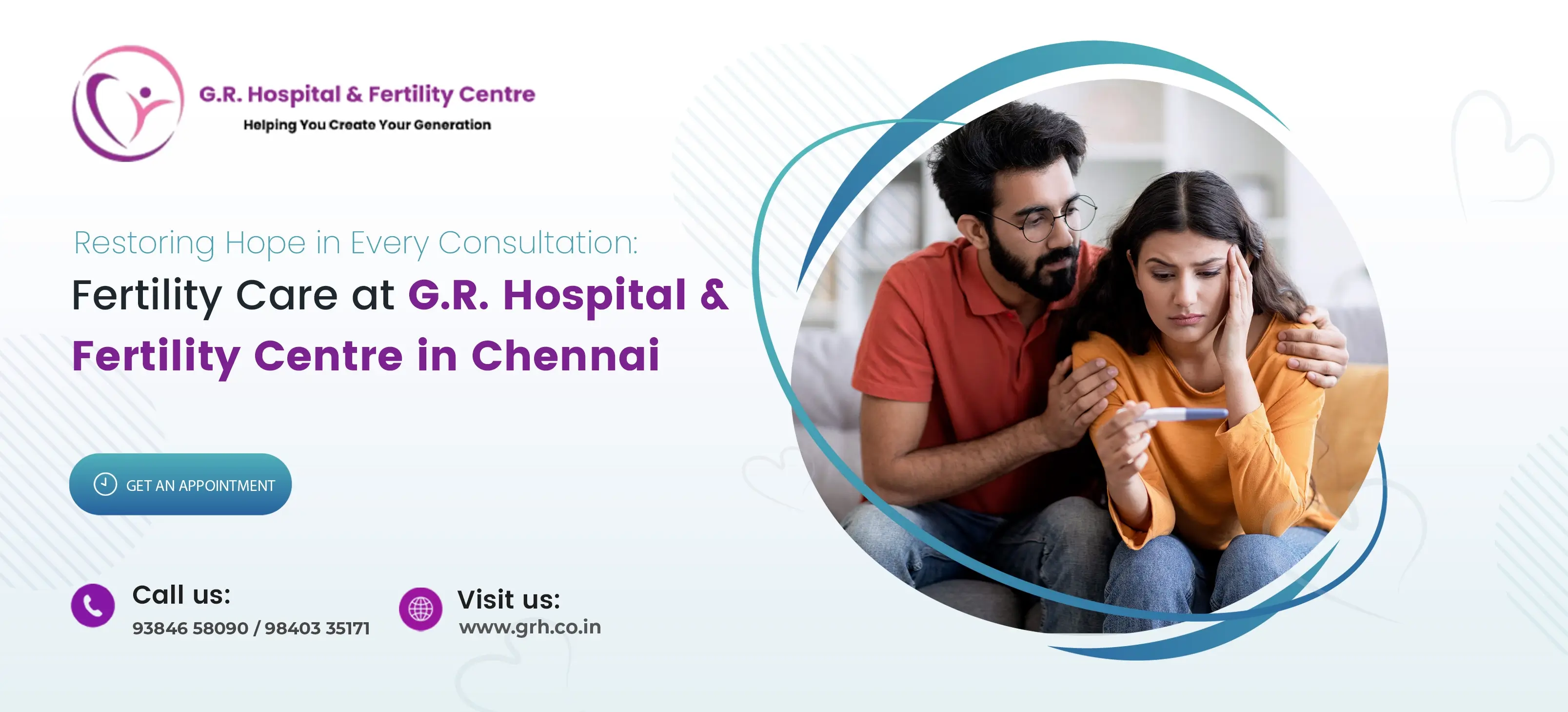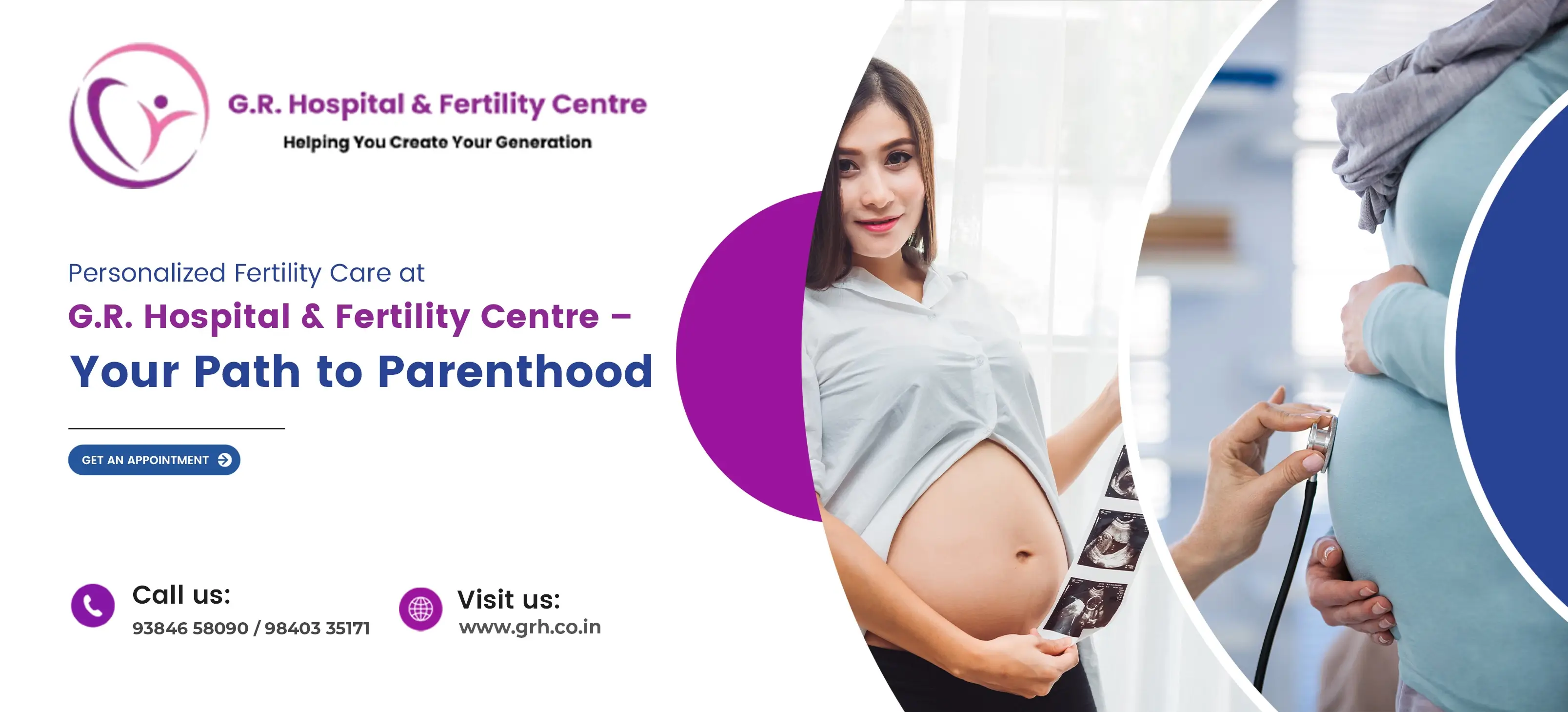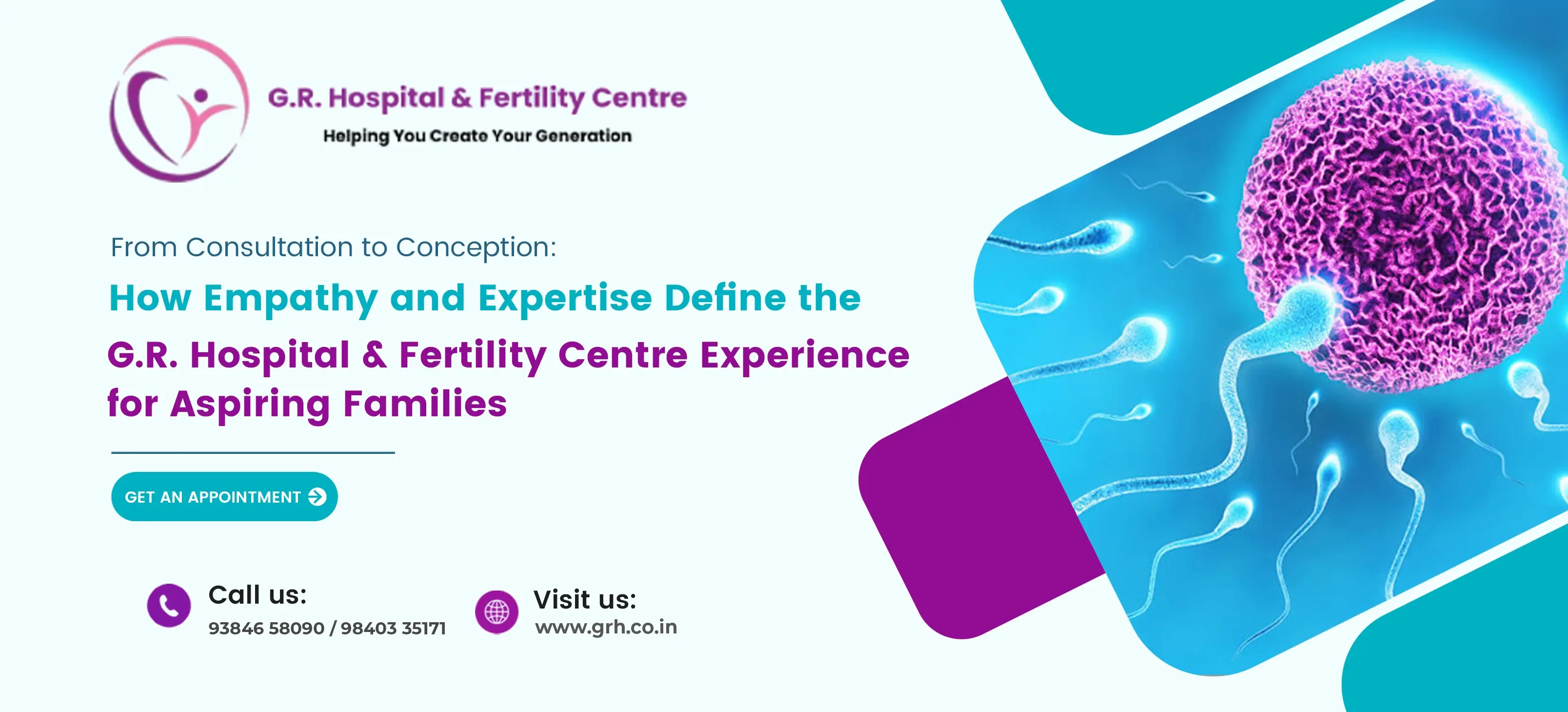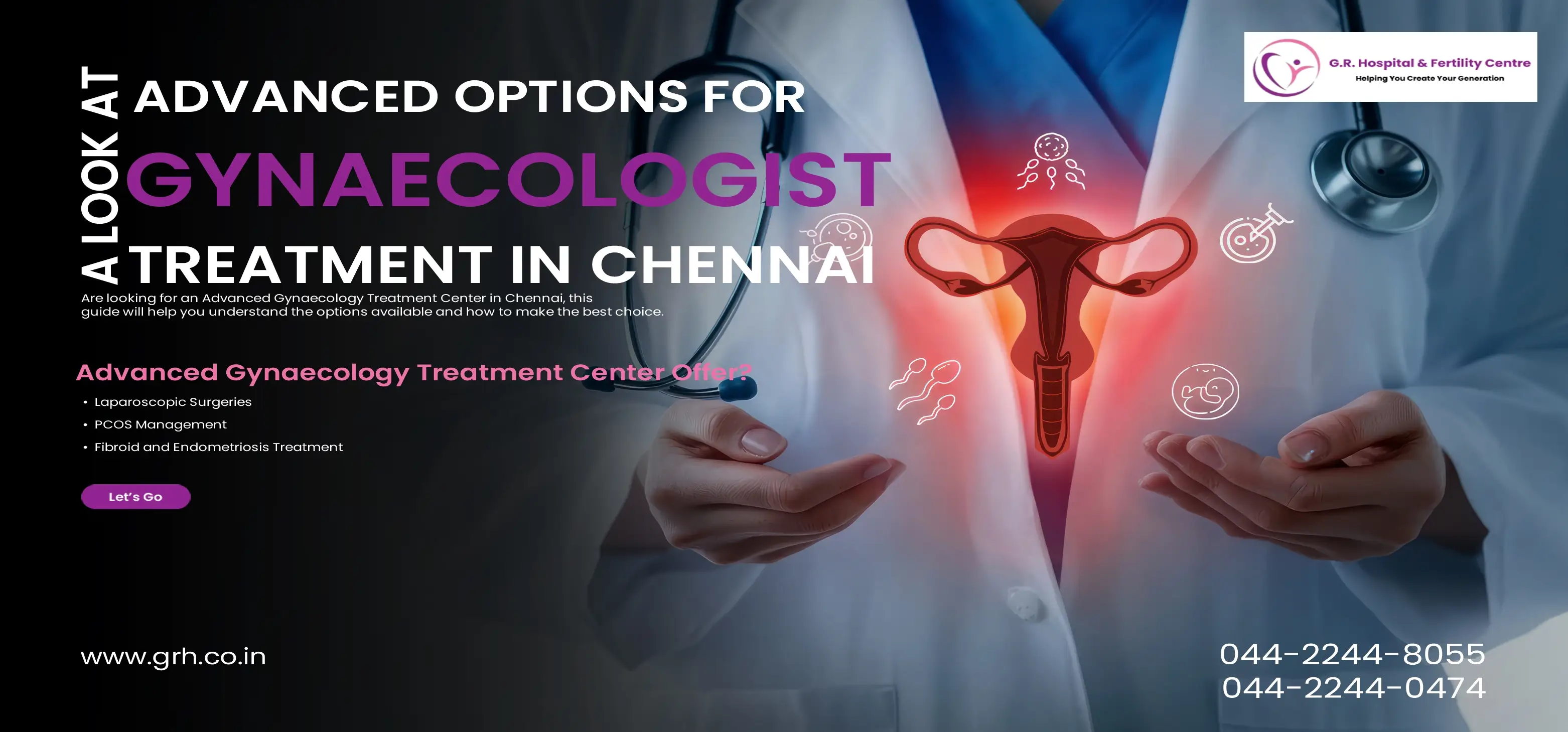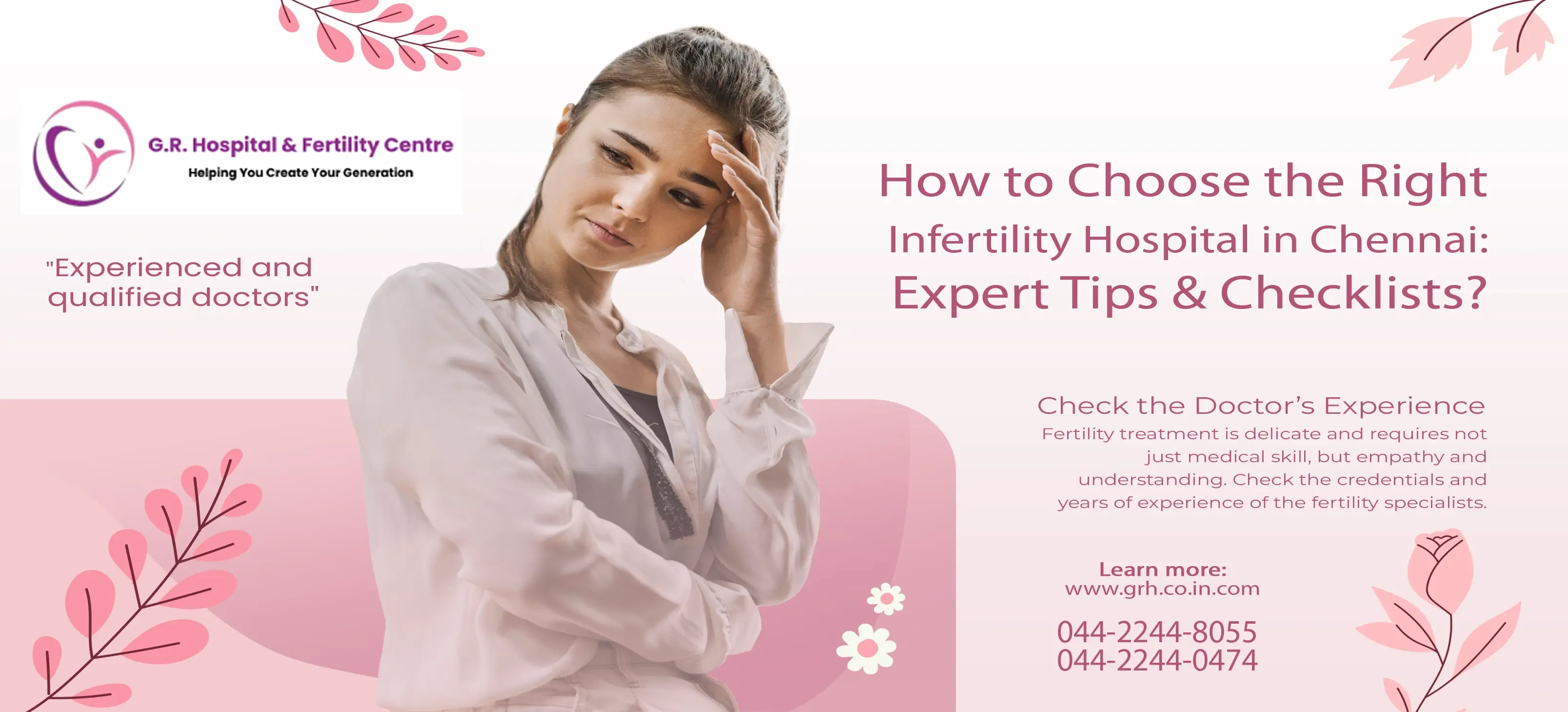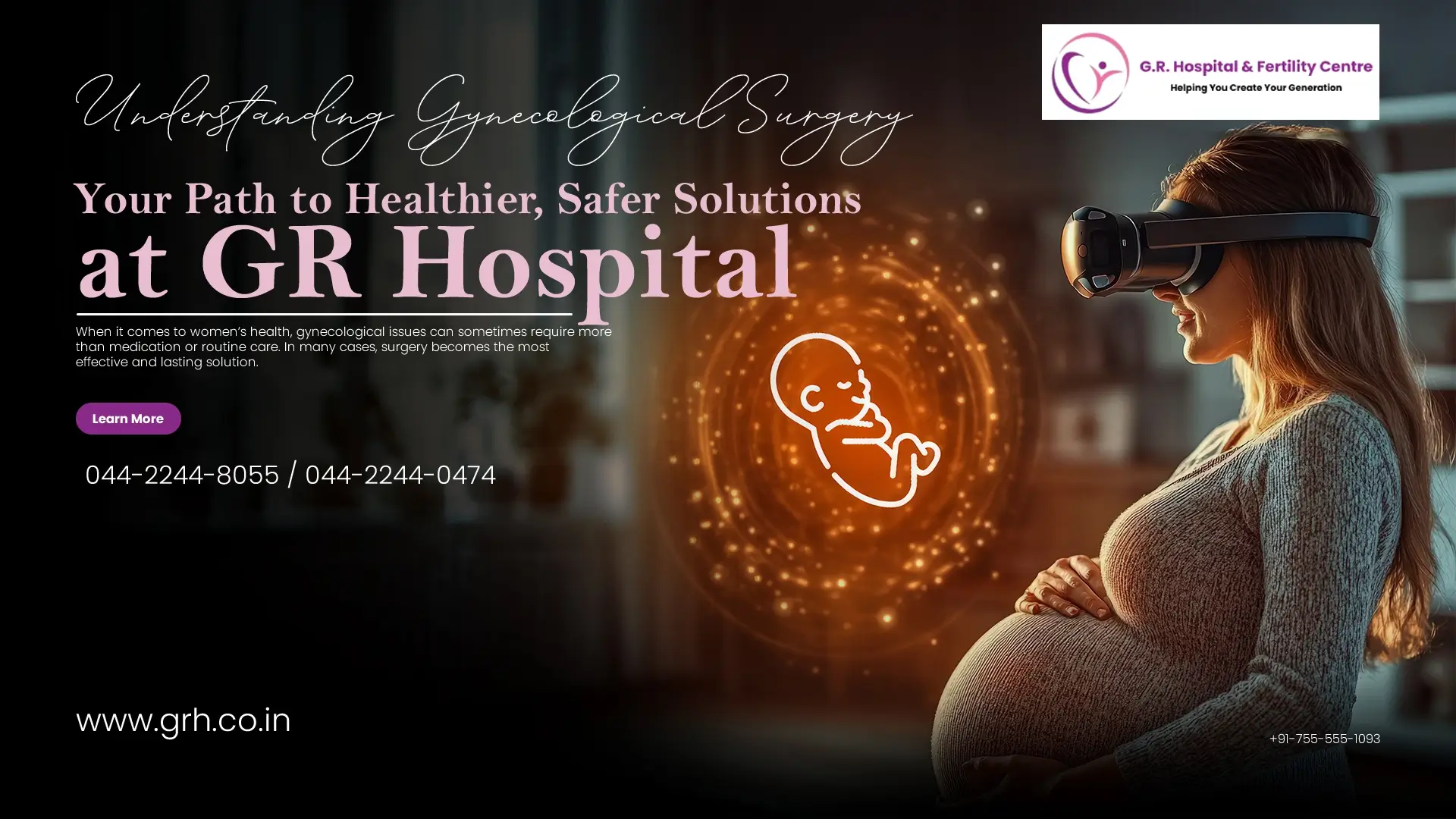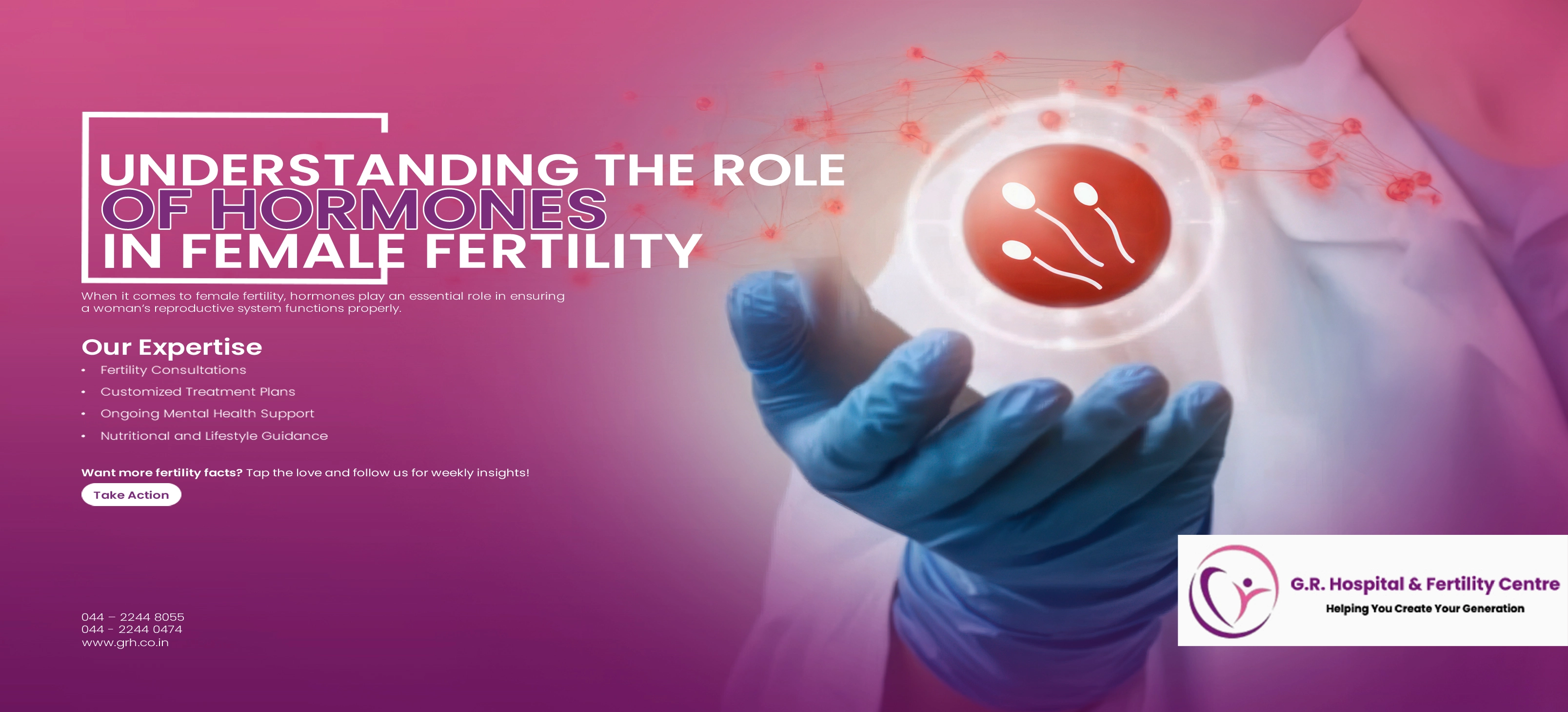
When it comes to female fertility, hormones play an essential role in ensuring a woman’s reproductive system functions properly. These natural chemicals act as messengers in the body, regulating everything from the menstrual cycle to ovulation and pregnancy. At GR Hospital & Fertility Center, we help women understand how their hormone levels influence their fertility and provide personalized care to support their journey towards motherhood.
What Are Hormones and Why Are They Important?
Hormones are chemical messengers produced by glands in the endocrine system. In women, several hormones interact in a delicate balance to manage the menstrual cycle, promote egg development, and support conception. A slight imbalance in any of these hormones can affect fertility, making it difficult to get pregnant.
As a trusted fertility hospital in Adambakkam, we frequently diagnose and treat women with hormonal imbalances that impact their chances of conceiving. Understanding how hormones work is the first step toward getting the right care.
Key Hormones Involved in Female Fertility
1. Follicle Stimulating Hormone (FSH)
FSH is produced by the pituitary gland and helps control the menstrual cycle. It is responsible for stimulating the growth of ovarian follicles, each of which contains an egg. High levels of FSH may indicate a reduced ovarian reserve, which can affect fertility.
2. Luteinizing Hormone (LH)
LH works alongside FSH. A sudden surge in LH levels triggers ovulation – the release of a mature egg from the ovary. Women who don’t ovulate regularly often have issues with LH levels.
3. Estrogen
Estrogen helps in the thickening of the uterine lining, preparing it for a potential pregnancy. Low estrogen levels may prevent the lining from developing properly, making implantation difficult.
4. Progesterone
This hormone supports pregnancy by maintaining the uterine lining after ovulation. Low progesterone levels can lead to early miscarriages or difficulty in getting pregnant.
5. Prolactin
Although prolactin is mainly associated with milk production, high levels can interfere with ovulation. Women with elevated prolactin may experience irregular periods or no periods at all.
6. Anti-Müllerian Hormone (AMH)
AMH gives an estimate of a woman’s ovarian reserve (the number of eggs she has left). It is commonly used to assess fertility potential, especially in older women.
At GR Hospital & Fertility Center, we conduct advanced hormone testing to give you a clear picture of your fertility health. As a leading fertility hospital in Adambakkam, our experienced team offers accurate diagnostics and compassionate support.
How Hormonal Imbalance Affects Fertility
Hormonal imbalance is one of the most common causes of infertility in women. It can lead to:
In many cases, hormonal imbalance can be corrected through medication, lifestyle changes, or fertility treatments. Our experts at GR Hospital & Fertility Center, a top fertility hospital in Adambakkam, design individualized treatment plans to balance hormones and improve reproductive outcomes.
Signs of Hormonal Imbalance
Some common signs that suggest your hormones may be out of balance include:
If you’re experiencing any of these symptoms, it's important to consult a specialist. The team at GR Hospital & Fertility Center in Adambakkam is equipped to evaluate your condition and offer expert fertility guidance.
Hormone Testing and Treatment at GR Hospital
Our hormone evaluation includes blood tests done at specific times during your menstrual cycle. Based on your results, we offer:
As a trusted fertility hospital in Adambakkam, our goal is to provide safe, effective, and personalized fertility solutions for every woman.
Frequently Asked Questions (FAQs)
1. Can hormonal imbalance be treated naturally?
Yes, in many cases, hormonal imbalance can be managed with healthy lifestyle changes like a balanced diet, regular exercise, stress management, and maintaining a healthy weight. However, medical treatment may be needed in more severe cases.
2. What age does fertility decline in women?
Fertility typically starts to decline after age 30 and more significantly after 35. Hormonal changes and a decrease in egg quality and quantity are key reasons.
3. How do I know if I’m ovulating?
Signs of ovulation include a rise in basal body temperature, cervical mucus changes, and mild pelvic pain. Ovulation predictor kits and hormone tests can also confirm ovulation.
4. Is IVF necessary for hormonal imbalance?
Not always. Many hormonal imbalances can be treated with simpler methods like ovulation-inducing medication. IVF is recommended only if other methods don’t result in pregnancy.
Why Choose GR Hospital & Fertility Center – The Best Fertility Hospital in Adambakkam
Hormonal health plays a vital role in female fertility, and understanding its impact is the first step toward successful treatment. At GR Hospital & Fertility Center, we specialize in diagnosing and treating hormone-related fertility issues with compassion and care.
Our dedicated team uses cutting-edge tools and personalized treatment approaches to help women on their journey to motherhood. Whether you're just starting to explore your fertility or have been trying for a while, we’re here to support you every step of the way.
For trusted, expert care from the best fertility hospital in Adambakkam, visit GR Hospital & Fertility Center – where hope begins and miracles happen.

